
















MESSAGE FROM THE GLOBAL ENGAGEMENT FELLOWS COORDINATOR
Elias Amro | Learn today, lead tomorrow
Daniel Amoshie | Combating child labour in the cocoa dector through technological innovation
Jayla Smith | Learn how to fall in love with a stranger
Deniz Nazarova | Civic activism and the arts
Mcebo Vincent Hlanze | Challenging the status quo through youth empowerment
Uulzhan Bekturova | Civic engagement, a potential gateway to explore the world

16 29 35 39 48
Sitora Sufijonova | How community service led me to become a social activist and a global citizen
Freda Agyeman | Empowering women’s financial independence through photography
Chinenye Ejereonye | Embracing gender equality
Mihail Mishev | Roma for new politics in Bulgaria
Samantha Mavunga | Aim to Shine: It starts with the desire to serve
Yaldah Negah | Hope for Equal Worlds
Robert Aharanya Claudio | Combating drug abuse in Kakuma refugee camp
Why join a civic engagement project?
Co-creating for positive change: the power of effective partnership
Why do some creative ideas die before their birth?
What makes a successful civic engagement project?
Weaponizing stupidity
Historical analysis of the Millennium Villages Project
The Afghanistan evacuation through the eyes of an insider
Gender equity in rural Kenya
The need for university education in Dadaab refugee region
Afghanistan’s women: Living a life full of fear and doubt
The Get Engaged conference through my eyes
Global Commons | Where global student voices intersect
Monthly civic engagement workshops
Afghan Students Conference
EXPERT OPINIONS
GLOBAL ENGAGEMENT FELLOWSHIP PROGRAM - JOIN US NOW
Note: The material in this magazine is written and collected from students leaders across the OSUN NETWORK who are not native English speakers and only roughly edited to preserve their voices.

In October 2017, at the closing ceremony of the Get Engaged Conference, which was hosted at Bard College Berlin, participants were asked to come up with ideas on how to stay connected post-conference and share what they learned with other students in their home institutions. That was when a group of students from the Get Engaged Conference came up with the idea of the Global Engagement Fellows Program
Global Engagement Fellows started by scheduling office hours to discuss civic engagement with students at their home institutions They served as a bridge, connecting students with a broader network of other young leaders across the globe. Currently, our Global Engagement Fellows promote and coordinate thematic civic engagement projects across the Open Society University Network (OSUN) on a daily, weekly and monthly basis Selected fellows have developed and sustained a civic engagement project and demonstrated leadership skills, as well as a desire and aptitude for working with others.
With the mission of helping young leaders improve their civic engagement activities at the institutional, national, regional, and international level, the Global Fellows Program aspires to spread knowledge and share success stories of young leaders to foster civic engagement movements – not just in their home institutions, but worldwide. The Global Engagement Fellows Annual Magazine gives students the opportunity
to promote their projects and share them with students across the network.
In the second issue of The Global Engagement Fellows Annual Magazine, you will learn more about civic engagement through the lenses of experts, successful projects by young leaders, the direction of institutional administrators on student engagement, and support from OSUN for project leaders. You will also learn about our fellows’ other activities, such as their office hours, stories they have shared with us from other students in their campuses, Global Fellows Monthly Civic Engagement workshops, leadership during crisis, the Get Engaged conference and more
We hope you enjoy each page of this publication and come back for more.
Yours sincerely,
Zarlasht SarmastGlobal Engagement Fellows Program Coordinator

Sometimes, big ideas come from minor opportunities. Elias Amro is a graduate of Al-Quds Bard College with a major in Computer Science and a minor in Economics. In his final year at college, while working on his senior project, he took an OSUN course called "Social Entrepreneurship." He was already thinking about creating an educational hub for students across the OSUN community, where students connect to share learning opportunities. Through the course, he created Investapeer Academy, which he describes as “an online peer tutoring platform constructed to give youth around the world growth on a personal, professional, and locally viable level, starting with Palestine." Although the project began with four teammates, it became a reality with the hard work of two Palestinian students, computer scientist Elias Amro, and a third-year economist, Natalia Handal.
Elias grew up in Palestine, so he understands the struggles people go through there. "Growing up, my family was not doing the best financially, so I had to struggle to get my education, having to work jobs in construction,” he said. “Luckily, I could secure a scholarship to get my education and not have to focus purely on work. However, I realize that not everyone is as lucky as me.
Furthermore, I realized that the skills I was able to secure jobs through were not things I had learned in university but were self-taught. This further pushes people away from education and makes it
more of a luxury to pursue That's why I wanted to make a change, to remove the dilemma between education and work, to make education a right rather than a luxury, and make education a more tailored and valuable experience "

The Investapeer Academy bridges both technology and educational services. By combining the two, Elias and Natalia have created an online education service that fills the gaps of pre-existing educational tech companies. While the previously mentioned companies offer plenty of opportunities, none provide free quality education with various services in the target audiences' preferred time zone and language. The Academy starts with the problems of uneducated youth and the lack of quality educational resources throughout Palestine, then proceeds with the idea that Palestinian youth are full of innovative ideas but lack guidance and financial support for their implementation.
The Investapeer Academy is created from and for students: an online platform designed and made to function by a student in Computer Science, Elias, with the help of financial and managing assistance by a student in Economics, Natalia, for students in Palestine and across the network. Students themselves realize they might get the best benefit if they exchange knowledge with each other. In the Investapeer online platform, you can find many clubs, classes, and workshops: If you want to discuss something in biology that you cannot fully understand, you can join the platform and get to know people who share the same interests and are experts in the area. As a student who is doing well in one subject, for example, and feels you can be a good tutor, you can also create your group, and if verified, you can start up your class!
In the OSUN Social Entrepreneurship course, Investapeer Academy was elected to compete globally to win a financial prize to To help attract investments and was ranked the second top project in a global competition hosted by OSUN.


Daniel, a senior Electrical Engineering major at Ashesi University in Ghana, doubled as a participant and presenter at the Ninth Annual Get Engaged Student Action and Youth Leadership Conference organized by OSUN and held from June 23-30 at the American University of Central Asia in Bishkek, Kyrgyzstan Before this, he exhibited resilience and initiative by founding projects like Inspy Farms, which employs an eco-friendly farming system, and, most recently, his cocoa project, a fully-functional machine for splitting cocoa shells He's also held club leadership positions, including president of Pentecost Students And Associates (PENSA - a religious student fellowship at Ashesi) and the Ashesi CAD club

Daniel is from the Upper East region of Ghana but has lived a part of his life in the Ashanti region, allowing him to experience a mix of rural and urban living He attends Ashesi University on a fully funded scholarship from the Jim Ovia Foundation He is also part of the Kufuor Scholarship program, designed to groom young outstanding Ghanaian students for leadership and professional development
While living in a rural village, Daniel witnessed the stress and danger involved in the cocoa podbreaking process Daniel recalls his dad not allowing him to be involved in the process as it required mastery to avoid getting hurt He also remembers that even for individuals with a high level of skill, the process was strenuous and timeconsuming, depending on the farm size or number of bags of cocoa
While living in a rural village, Daniel witnessed the stress and danger involved in the cocoa podbreaking process. Daniel recalls his dad not allowing him to be involved in the process as it required mastery to avoid getting hurt. He also remembers that even for individuals with a high level of skill, the process was strenuous and timeconsuming, depending on the farm size or number of bags of cocoa.
Besides having a personal experience that spurred him to take action, Daniel was also motivated by other social issues surrounding the cocoa business, particularly child labor. The facts are glaring. "In West Africa alone, about 2 million children are breaking the cocoa pods," said Daniel. In response to this, Daniel saw a gap that he believed he could fill. Through his engineering background, personal drive, and undaunting passion, he brought his project to life, even going as far as bootstrapping the initial stages of his project until he received a stipend from Ashesi and the help of OSUN.
with a Ghanaian company that fabricates Agritech machines for Ghana farmers to help bring his project to life. His work also earned him an invitation to present his research paper published by the Institute of Electrical and Electronics Engineering (IEEE) at the 2022 ISTAfrica conference in South Africa, which due to covid, was held online. "Making an impact involves using your abilities and skills to recognize and solve problems regardless of the current resources at your disposal," says Daniel.

Daniel, whose project started during the school year, has had to make many sacrifices. For instance, he had to find ways to strike a balance between his coursework and project. Additionally, getting funding to finance his project idea has also been quite a hassle. It has also been a critical challenge to receive his patent from the Ghanaian government. Despite all of these challenges, Daniel pushed beyond the barriers to achieve many successes for his project. Recently, he partnered

Daniel says there were two phases to his project: the technical part which involved building the machine) and the social part that involved conducting classes for students. Through support from the OSUN, the project has also received exposure. Daniel expects to leverage this network to grow his project to better heights and get more exposure. Daniel also hopes that the cocoa shedding process can become more efficient for the local farmers. As a result, he intends to sell the machines for an affordable rate.
Daniel's hard work and passion do not come as a surprise, as he believes everyone can make an impact by making the best use of the resources at their disposal, no matter how small This attitude has guided his leadership and personal projects so far Daniel's story, like many others, clearly indicates how dedication and personal sacrifice go a long way in allowing individuals to create lasting change while challenging the status quo, whether working individually or collectively It is not enough to identify a problem or need around you, but taking an active role in creating solutions that address that need, no matter how small, is what's most important
"All it needs is small, consistent efforts that build up to create real social change for the individuals or communities involved."

Jayla Smith is a civic activist at Bard College Annandale and the founder of the community-based project "Falling in Love with a Stranger," which raises the issues of human social connection and its importance in people's lives Jayla started her path to civic engagement within OSUN recently, taking part in the Civic Engagement course, which helped her a lot with the formulation of ideas, implementation, and promotion of the project

Jayla Smith grew up in the Hudson area near Woodstock, New York, in the United States She received a home education and later attended different schools and colleges where she studied subjects interesting to her, such as music, art, writing, etc Now, she has transferred to Bard College With regards to education in civic engagement, Jayla noted that she did not have an introductory point in this area According to her, she did not feel comfortable in the political form of expression of civic activity, such as participating in protests or standing on streets with signs and slogans She is more comfortable talking about it, communicating with people about a particular person's experience She says, "I always like to talk to people about ideas, but I don't feel confident about getting politically involved so much So, I felt more connected talking to people and hearing their stories ”
With this idea in mind, Jayla arrived at Bard College and noticed one fascinating problem that was always present but not always so noticeable Many diverse communities gathered in one college were separated They mainly consisted of local and international groups of students This happened in various educational institutions Jayla attended It was easier for students from different countries to speak and communicate with someone who shared their language or nationality than with someone with a significantly different cultural background
After talking to many international students in the college and learning about their experience of communicating with local students, Jayla became very passionate about "how we could shift their experience, because it seems so great to be in this place with so many different people coming from such different perspectives, but there were so many missed opportunities there " With this reasoning, she wanted to promote interaction between international and local students and create opportunities for connecting these groups This inspired her so much that she used her ideas and skills for this project, and that became her entrance point into civic engagement
Falling in Love with a Stranger is a series of questions aimed at connecting people who would never think of connecting. It is a valuable tool for creating a space to cooperate and communicate with the help of specific questions. After answering a series of questions, the last task is for respondents to look at each other for two minutes, which is the most intimate part but makes the connection even more vital. It is a striking and unexpected experience demonstrating that connecting with a stranger is possible, not becoming friends or partners but seeing that communication is the power.


The question that came up during the discussion of Jayla's project was whether her project is a community need or her interest, to which she replied, "It's definitely both; what I'm trying to follow is the community needs and I am approaching it through my personal interest." She explained that she observed the need to connect people in the community of college students and saw how it relates to her personal interest in having deep conversations. Jayla tries not to position herself as the primary model so that the project is not about her but the people who participate in it. "This project is not about teaching people how to cooperate and communicate. People already know how to do it; they just need to be allowed to do it themselves,” she says. I'm just creating a place to connect."
The main challenge Jayla faced was that she was the only person responsible for everything. She serves many roles at a time–making all the posters and cards with QR codes, organizing materials, picking up food, arranging tables, encouraging participants to interact with each other. So having that immense responsibility made her experience challenging. Nevertheless, the main goal of the event was achieved: approximately 75 people participated and gave their positive feedback on the project, proving the possibility of connecting with a stranger was real!
The project's next phase is searching for an engaged and interested team of diverse people with bright ideas and different experiences to make the project even more dynamic. In addition, Jayla mentioned that although the project is mostly now active on the Bard campus, it can also be implemented on other OSUN campuses in person, or online via Zoom. "I would be happy to see people connecting all over the network using these questions!" she says excitedly.
Jayla advises other civic activists just starting their journey to see what a community is already doing and how you can make an impact. "Keep talking to people about their experiences that might be relevant to your project, and keep in touch with what you're passionate about, but don’t get too involved in what you want and keep your wants separate from what your project is trying to address. Apply your interests and passion effectively to the community needs you are trying to solve."
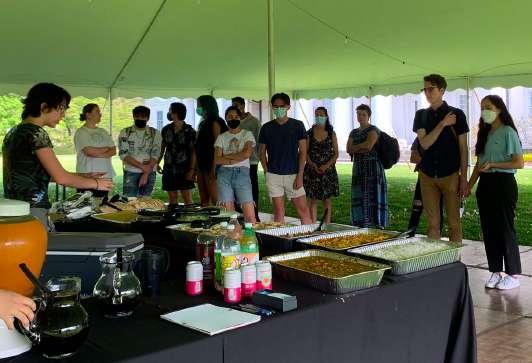
Deniz Nazarova is a senior at the American University of Central Asia (AUCA) doing a double major in software engineering and psychology. Deniz is a mental health activist and the chair of the Student Senate. In this article, she discusses her passion for improving mental health accommodations at the university for the benefit of the student body.

Deniz is a committed student with a persevering personality. She has worked hard on raising awareness about mental health through her project, expanding it to work in non-governmental organizations, and now works on normalizing mental health issues at her university.
Early on, Denizstarted drawing and making comics about her mental health as a form of self expression When it comes to mental health, "it is not about rationalizing but rather an expression of emotions," she says. She thinks mental health
issues are better expressed through visual art because people understand and relate more to things they can see. Deniz has expanded her project to the level of the magazine and now civic engagement.

When Deniz and I met, I was amazed by her consciousness on a personal and social level. "If you want to change the world, then you need to start with yourself," she shares. This is how she started working in the local feminist nongovernmental organization to advocate for women's rights. That first milestone in her beginning of work motivated her to go further and be committed. Deniz also shares that there always needs to be someone to kick off an initiative.
As the chair of the student senate, Deniz tries to mitigate problems before they become more prominent, working on the needs of students Her inspiration is to create spaces for marginalized
groups whose voices are not often heard. The Senate, in her words, was quite effective. It was hard, at first, to get used to the activities and structural functions.
Deniz is quite humble as she shares that despite her active involvement, the Senate's work was a collective work of colleagues. Their main achievement was to show that students need to pay close attention to voting Among the Student Senate initiatives are the women's rights programs, such as installing menstrual products in all the bathrooms, creating an antiharassment policy, and coordinating and providing shuttle bus service for students staying late. Looking to the future, Deniz’ goals include working on upcoming student Senate elections and a smooth transition/orientation program for the new senators because sustainability is the most important thing. "If something works only for one year, then it is not a good project," she says, then laughs.

Deniz also mentions that it is hard to do civic engagement work and totally detach from your personality, forget about your own struggles, and represent students' needs. It is about numbing all emotions and being more objective and focused. When there is a statement from the Senate, not just Deniz is affected. It involves many meetings and votes—all requiring discipline, resources, and time management. In social norms, there are challenges to being a woman in a leadership project. Last July, OSUN partially helped her initiative in getting additional training through CEU’s "Student as a Citizen" program.

 by Elizabeth Chinenye Ejereonye - Ashesi University
by Elizabeth Chinenye Ejereonye - Ashesi University
Vincent is a Business Administration major at Ashesi University in Ghana and a member of the class of 2024. He is the founder of Dreams Arise Youth Empowerment Organization (DAYEO) and attended the 2022 OSUN Annual Get Engaged Student Action and Youth Leadership Conference held at the American University of Central Asia in Bishkek, Kyrgyzstan. Before this, he participated in the OSUN workshop for Public Finance and Economic Policy at Bard College, New York.

Vincent grew up in a rural community with his grandparents in Swaziland. He attended the only primary school in the community and then moved to an urban high school, where he ranked among the top 50 students in his country. He is the first person from his community to attain this feat. He received a fully funded Mastercard Foundation scholarship to attend Ashesi University for his tertiary education
In University, he took leadership classes, giving him a different perspective on problem-solving and impact-making These classes spurred him to seek issues and challenges in his community and create solutions to solve these problems This led him to take a deeper look at problems in his community in Mgamudze including a high school dropout rate and teenage pregnancy among kids as young as 12 His research also revealed that among 100 students, only 40% of graduated from high school, only 20 percent passed Form 3, and only 10 percent finisedh Form 5 Out of the 10 percent that finish Form 5, only 1 percent make it to tertiary institutions
All of this bothered Vincent. Vincent believed that if he had attained success despite growing up with all of these barriers, he could encourage others to do the same and more, using his story as one of many such examples.
Vincent reached out to several other university students in his country who had also pushed through significant barriers to success. Together, they organized speaking events and held workshops for students from different schools in the community. These activities led to the creation of the Youth Empowerment organization. For Vincent, this was one way to actively affirm his belief that "One of the best forms of motivation to give to others is by being an example yourself, thereby proving that the status quo can and has been successfully challenged."

Through his organization, many impacts have been made, such as producing and donating school uniforms to students and experiencing a higher passing rate among students For Vincent, this is a highly fulfilling experience For him, the memory and joy of seeing bright smiles and happiness spread across the faces of the recipients always stays with him While he has made a lot of personal sacrifices, the project has also received support from the Ford Foundation, among others


Despite the project's successes, Vincent and his team have battled some challenges to bring the project to its current state For example, working with a team of students from different universities, stakeholders and locations poses a communication and coordination challenge However, Vincent does not intend to let these deter him He still hopes to see more students from his community attend university
As a result, he plans to expand the project further into more rural communities to reach students who face similar or more significant challenges than those in his community. He keeps a positive attitude and believes his organization will continue to educate and empower disadvantaged young people to break cycles of poverty and lead change in their families and communities and contribute to equitable and sustainable development in Mgamudze.
"When people are oblivious to the range of possibilities available to them, it is easier to settle for less or what is easily obtainable."
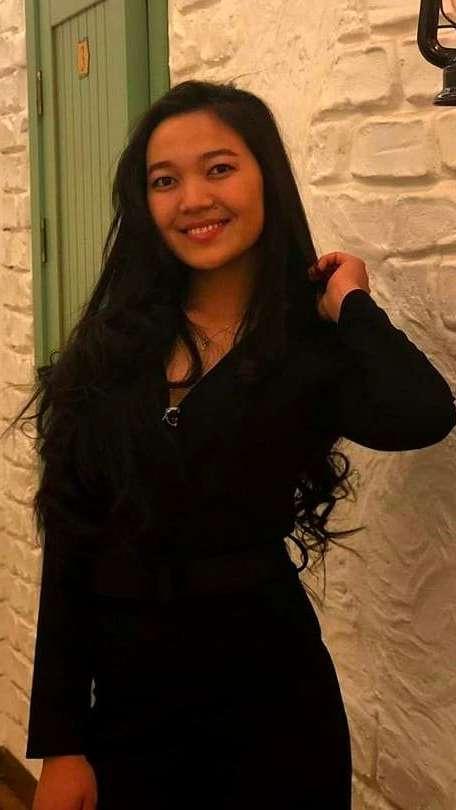
 by Aidin Turganbekov - American University of Central Asia
by Aidin Turganbekov - American University of Central Asia
Uulzhan Bekturova is a senior at the American University of Central Asia (AUCA), majoring in Liberal Arts Studies, concentrating on human rights. She comes from a small village in Narynin northern Kyrgyzstan. In Kyrgyzstan, some parents tend to be moved by conservative social beliefs and divide the responsibilities and possibilities based on the child's gender. For example, men usually take responsibility for outdoor chores, such as cattle care. However, her family only had daughters, so Uulzhan and her five sisters assisted her father in these tasks. With the difficulty of accessing clean water, she would wake up early to get it first, feed the sheep, study, organize social events, and return to feed the animals again. From the 7th grade on, along with her home chores and the cattle, cleaning and cooking, Uulzhan began participating in afterschool events, including sports and academic competitions. Although she has a solid and challenging workload at home and school, her parents encourage her to participate in all social activities to actively pursue her interests.
As AUCA values connecting academics to extracurricular activities, Uulzhan decided to jump into civic engagement events right from the New Generation Academy, a preparatory program to study at AUCA. Being a part of the Open Society University Network gives AUCA's students multiple opportunities to implement their civic engagement projects The OSUN Human Rights and Arts Grant, which Uulzhan won after writing a proposal based on her Introduction to Human Rights course during her first year, enabled her to study abroad at Bard College Annandale
Seeing various human rights problems, she and her team organized workshops for youth in rural areas They focused on using photography to spread awareness about local violations and implemented a project for girls and youth empowerment in rural areas to provide tools in leadership, active listening, and application to
other programs. These experiences helped her to not only develop e both soft and hard skills to deal with various life experiences.
Thanks to communication with a diverse student body, Uulzhan learned about a fully-funded program in New York City The Program for International Education (PIE) and applied with an already rich civic engagement experience and international worldview. "It was the best experience I have ever had because Bard is just one love!"

Uulzhan says excitedly of her experience. She also shares that those activities she was organizing and being part of helped immensely in finding opportunities in the human rights sphere. She didn't waste time at Bard either, being part of knitting, dancing, assisting on the farm, and helping at the thrift store to support vulnerable communities. Therefore, the abundance of clubs inspired Uulzhan to open a knitting club at her university to help students socialize and release stress during the intensive academic year.

Uulzhan underlines that active communication, a humble attitude, and sincerity are all skills that help to attract people with kind and supportive souls. After hearing about the German language program at Bard College Berlin, Uulzhan started reaching out to university staff and international friends to raise funds so she could study German culture and marginalized communities there Uulzhan encourages readers to be open to all challenges and opportunities and emphasizes that curiosity about others often leads to exploring the world and finding inspiration to bring that experience back home and strengthen local communities


Thanks to community service, I enriched my knowledge and upgraded my skills to pass them on to the next generation While working at the American Space Dushanbe in Tajikistan at the very beginning of my volunteering journey, I learned more about other organizations in Tajikistan, such as Youth Peer Network Education, focused on healthcare and reproductive rights; the public charitable organization Upshift, which collaborates with centers for people with special needs such as autism; and the Office of Civil Freedoms, which helps youth and teenagers to know their rights It has been an eye-opening experience for me to promote the development and progress of organizations making a positive impact on our society.
Upon embarking on my community service journey, I joined a group of driven, passionate, and like-minded individuals striving to shape the future of their communities through networking and crosscultural communication. In 2021, I was nominated for the NEXT30 Program, a campaign launched by five U.S. Diplomatic Missions in Central Asia and the GoViral network. It’s a unique program for 30 young leaders from Central
Asian countries to meet with American experts working in fields of business, IT, media, technology, culture, and civil society to expand their professional network and make meaningful contributions to their home communities within the next 30 years

Thanks to community service, I enriched my knowledge and upgraded my skills to pass them on to the next generation While working at the American Space Dushanbe in Tajikistan at the very beginning of my volunteering journey, I learned more about other organizations in Tajikistan, such as Youth Peer Network Education, focused on healthcare and reproductive rights; the public charitable organization Upshift, which collaborates with centers for people with special needs such as autism; and the Office of Civil Freedoms, which helps youth and teenagers to know their rights. It has been an eye-opening experience for me to promote the development and progress of organizations making a positive impact on our society.
Before joining the Global Engagement Fellowship 20222023 Program, I had an opportunity to intern at the Social
Innovation Lab Kyrgyzstan as a survey assistant in measuring the social capital of Bishkek municipalities Apart from that, I joined the C5+1 Youth Council to help its members with project implementations in other cities of Kyrgyzstan Despite a busy academic schedule and other projects, I joined the Global Fellows team to strengthen the connection of students studying at AUCA with students from across the world As future international leaders, I am certain that we will make our campuses into better learning environments, where students will come to cherish their academic life and get prepared to join another team of like-minded individuals to find better solutions for unsolved problems being discussed daily without any action.
Freda Agyeman is a student at Ashesi University in Ghana She founded Photo4Her in December 2021, a project dedicated to educating adolescent mothers about photography, how to take photographs, and how to run a photography business The objectives of her project are to remove the cultural stigmatization of teenage mothers, fight gender inequality, lower poverty in households, empower girls, and boost employment opportunities for teenage mothers
Freda is also a student entrepreneur who sells phone accessories, popcorn and bedsheets Additionally, she runs a T-shirt printing business and works as a photographer on campus Furthermore, she is the chairperson of the Electoral and Documentation committee for the MCF Scholars' Foundation on campus Freda is currently one of the Global Fellows at Ashesi University, serving as a bridge between her fellow students on campus and the OSUN Network

Freda started her project in Ghana, following her observation of teenage girls having children and being unable to live independently due to financial reliance. The Photo4Her project is dedicated to teaching teenage girls the fundamentals of photography and cameras so they can start working after training and generate income.
Freda’s primary motivation for establishing her project was to assist girls in becoming financially independent and to participate in improving their communities. She decided to start her initiative after seeing the girls who were forced to drop out of school due to teenage pregnancy experience great difficulty in their lives. In addition to the training, Freda devotes her time to assisting students in her community to establish their own projects and apply for funding.

As a photographer, Freda is the primary instructor of the project "One of my beliefs is to help people set up a project independently” she said When she started her project, Freda gathered girls who wanted to learn and received positive feedback "Photo4Her initiative is currently succeeding as ten girls have learned the fundamentals of photography," she adds Obtaining the funds for her project is still a challenge, but she has submitted numerous applications for opportunities and microgrants to overcome the obstacle
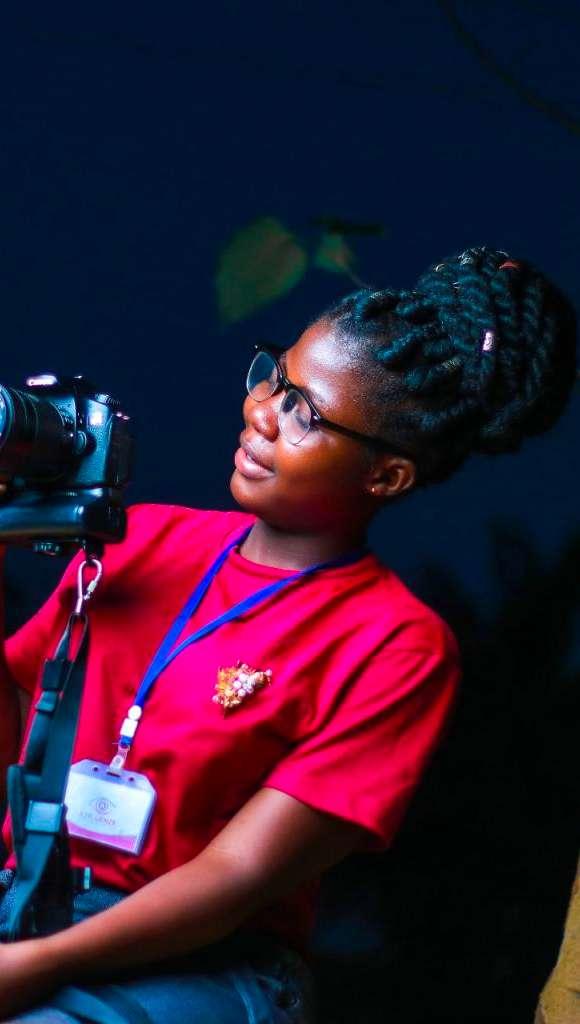
After coming up with the idea to launch Photo4Her, Freda applied for OSUN microgrants and was given the initial funding to begin her initiative. Future objectives of Photo4Her include giving teenage girls in Ghana more opportunities and resources to pursue photography education, begin their own businesses, and support one another. For Freda, being an OSUN Global Engagement Fellow served as the basis for her project to be more impactful as she got the opportunity to meet other project leads, learn from their successful project launches, and at the same time assist other students with their project ideas in Ashesi University.

“I aim to give these young women a source of income so they can be independent and not have to beg men for money who might end up getting them pregnant. The sad part is some of the men even end up not accepting the pregnancy, turning the young girl into a single mother at that early age."
Chinenye Ejereonye is a senior at Ashesi University studying Business Administration She is a prominent influencer of student leaders when it comes to impactful ideas and initiatives to change society A talented student, she has held positions that include the Public Relations Officer of the Ashesi International Students Association, a Millennium Fellow (Class of 2022), a Global Engagement Fellow of OSUN at Ashesi, and the co-founder and current President of Code4All Fast forward, Chinenye is keenly interested in inclusivity and gender equality. Her co-founded project aims to build STEM in Africa and, most importantly, girls' lives.

For the past four years, Chinenye has been a leader seeking to impact change at Ashesi University. Coming from an underserved community, her goal is to make a difference in people’s lives. Chinenye, like other students at Ashesi University, had limited awareness of STEM education (Science, Technology, Engineering, and Mathematics), which piqued her curiosity about the benefits such education might bring her peers in underresourced communities. Chinenye's motivation for co-founding Code4All was to provide technical expertise, access to computers, and general STEM education in such communities in Ghana, such as Berekuso.
Aside from Chinenye's project, she was selected as a Global Engagement Fellow for the 2022/2023 academic year to assist other student-led projects as they launch and pursue goals in society and their origin countries,
As a Fellow, Chinenye anticipates that the skills she develops will aid her in executing current and future project ideas and increasing her understanding of and cooperation with the communities she aims to impact.
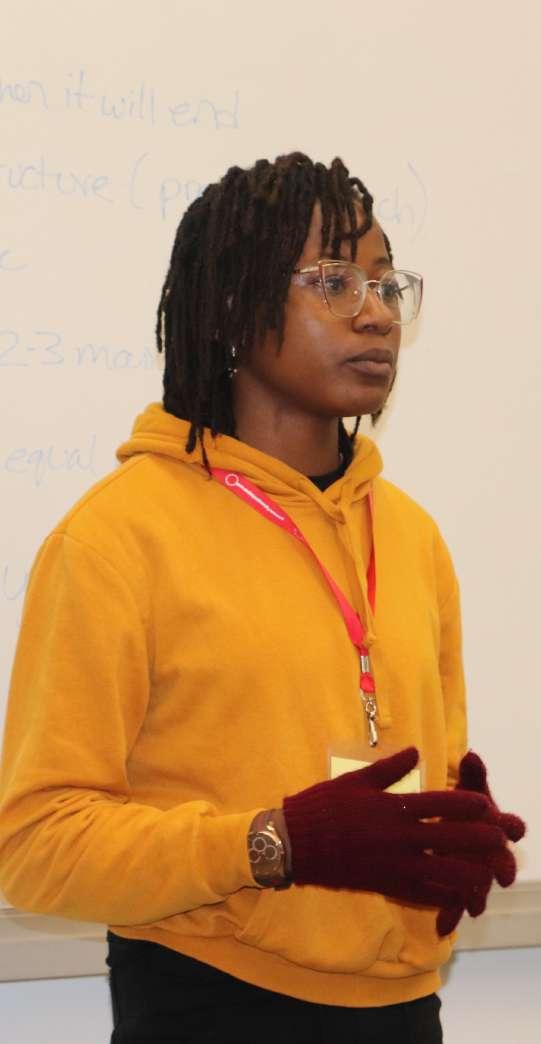
"I want to see civic engagement on campus reach an optimum high, and also expand the reach for the Code4All project for all people with no barriers, especially young girls out there."
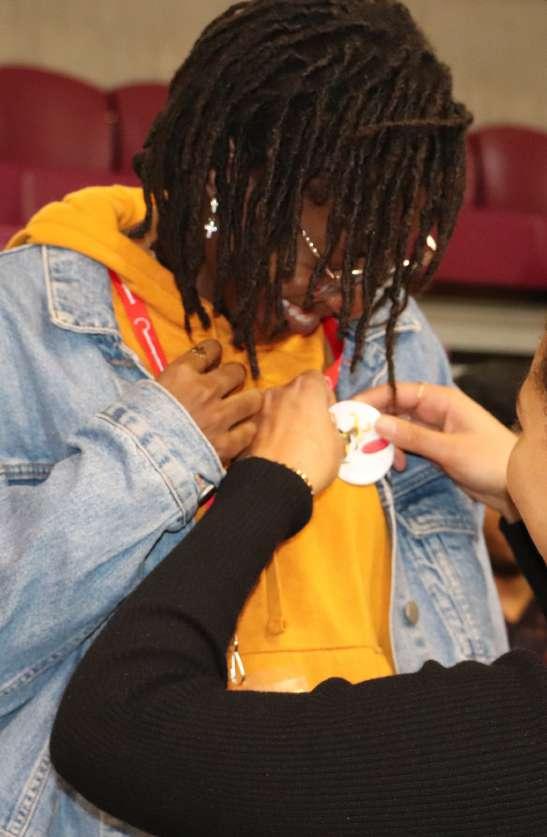

Code4All was started in two Ghanaian schools in the Akuapem district, providing ICT and programming skills to students aged 10-15 from underserved communities.
During the project's early phases, Chinenye and other founding members had to bring the girls from their villages to Ashesi where they could access computers for training. The project's purpose is to improve digital literacy, promote girls' engagement in STEM, and create the next generation of critical thinkers capable of using technology to address Africa's challenges. "This project aims to bridge the technological gap between Africa, as a developing continent, and those continents further along in their development," Chinenye explained. She adds that through her project, girls in some parts of Africa will be able to access mentorships and training in STEM education, to bridge the gender gap in the technological world.
To expand, Chinenye and her co-founders acquired laptops, routers, projectors, and internet bundle subscriptions for the beneficiary schools to encourage quick learning and easy access to devices for training. When the COVID-19 pandemic struck, Chinenye identified their challenge as transportation of students to the Ashesi campus Fast forward to 2022, and the purchase of the equipment has helped solve the issue because now all beneficiary institutions have the means to hold training sessions Chinenye intends to extend to additional schools and reach more girls to help bridge the gender gap in STEM, as well as to have more volunteers and incorporate other soft-skills classes for beneficiaries who are not interested in STEM "I know there is hope for all," she said
"This project aims to bridge the technological gap between Africa, as a developing continent, and those continents further along in their development."

Mihail Mishev is a Roma activist from Bulgaria majoring in Political Science and Psychology at the American University in Bulgaria. He is an intern at the Council of Ministers of the Republic of Bulgaria and he participated in the drafting of the strategic document for the national strategy for equality, inclusion, and participation of the Roma (2021-2030) and the National Action Plan for 2022-2023. He has been a panelist and speaker at several conferences organized by the European Commission and the European Parliament (2021 - 2022). He is a co-founder of the Foundation Opre Roma for Community Empowerment (FORCE), and a member of the Bulgarian Community for Liberal Democracy (BOLD).
Mihail Mishev has been an activist for Roma rights for over eight years. His initial efforts were as a volunteer in numerous local initiatives in Sliven, Bulgaria, his hometown. He realized in high school that the Roma community in Bulgaria needs more than simply voluntary initiatives but also real commitments and policies from the state and the civic sector. This inspired him to join the structures of the Roma Standing Conference (RSC), a grassroots movement, as a local activist in 2019. Mihail climbed through the ranks of the structures, becoming a member of the national and communications teams. Through a series of
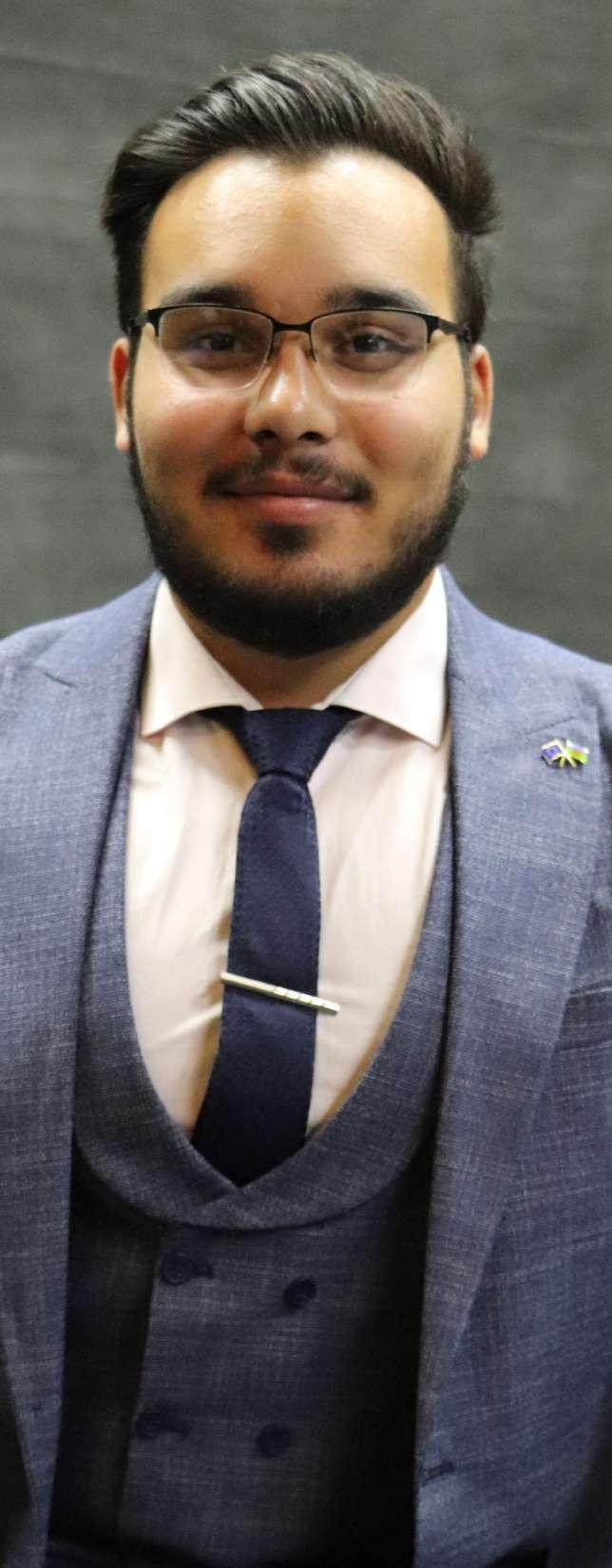
campaigns, he developed experience and confidence in himself, eventually becoming the movement's main actor in communication strategies and implementation.
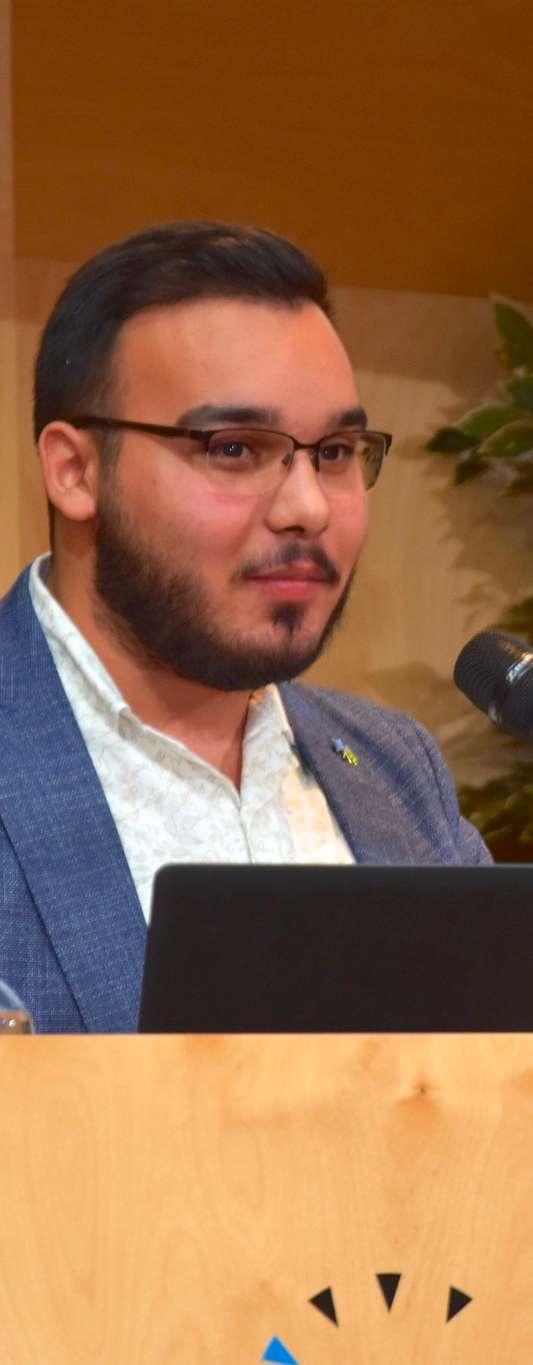

Bulgaria had new parliamentary elections in 2021, a great opportunity for RSC to launch its campaign, "Roma for a New Bulgarian Policy." The campaign's goal was to bring together politicians from various political parties to support the Roma community's priorities and pledge to work for their resolution. Mihail and other activists at RSC began their efforts by sending a survey to 1,000 Roma around the country and then created a Manifesto with ten objectives touching on housing policy, education, economic stability, anti-Roma rhetoric, and more The Manifesto received over 44,000 signatures from Roma from 68 communities in less than a month All this was possible because of work done by Mihail and approximately 100 other local Roma activists
Next, twenty-five candidate deputies from five formations (who later entered the Bulgarian National Assembly) agreed to participate in Facebook livestreams discussing "Roma as a Resource in Bulgaria's 2030 National Development Plan " These discussions on social media reached over two million people in a country of seven million and all participating politicians pledged to support the Roma community
The newly elected representatives of the people in the National Assembly drafted a law that addressed the issue of over 200,000 persons lacking identity documents, excluding them from working or owning property Unfortunately, the National Assembly was dissolved when the parties failed to form a government and the proposal was never put to a vote Bulgaria has since undergone a political crisis, making resolving the Manifesto's concerns impossible. Despite all of this, the RSC’s campaign was the largest grassroots Roma movement ever.
Samantha Mavunga is in her final year pursuing a bachelor's degree in Computer Science while doing an online accelerated master's degree program at Arizona State University in Information Security. She is a social entrepreneur who does a lot of activities on and off campus. She recently interned with AMRE in the United States as a software developer. She is the ambassador of Zaka AI, an artificial intelligence company in the United States, and also the co-founder of TODA Investments based in Zimbabwe and Ghana. Although Samantha is interested in technology, she is passionate about seeing positive change among boys and girls in her community. She takes her inspiration from Mother Theresa's words, "There is joy in transcending self to serve others."

AIM TO SHINE is an educational NGO founded in 2018 by Samantha Mavunga in her home community in Chitungwiza, Zimbabwe Her NGO provides direct mentorship to primary school students from underresourced backgrounds and nurtures them for success in life
In 2018, many students came to Samantha for help with their homework assignments and she started meeting them daily to teach them basic math and English. After two months, she was assisting more
than twenty students and that number grew significantly daily That’s when she realized there was a need for recruiting others who could help provide the service
Ever since she began, she has been motivated by the project's impact on the lives of her peers and other vulnerable children in her community In 2019, when she started her university education, she shared ideas about her initiative with one of her lecturers interested in social impact and they helped her develop a framework for the project Now, with the help of nine mentors, Aim to Shine
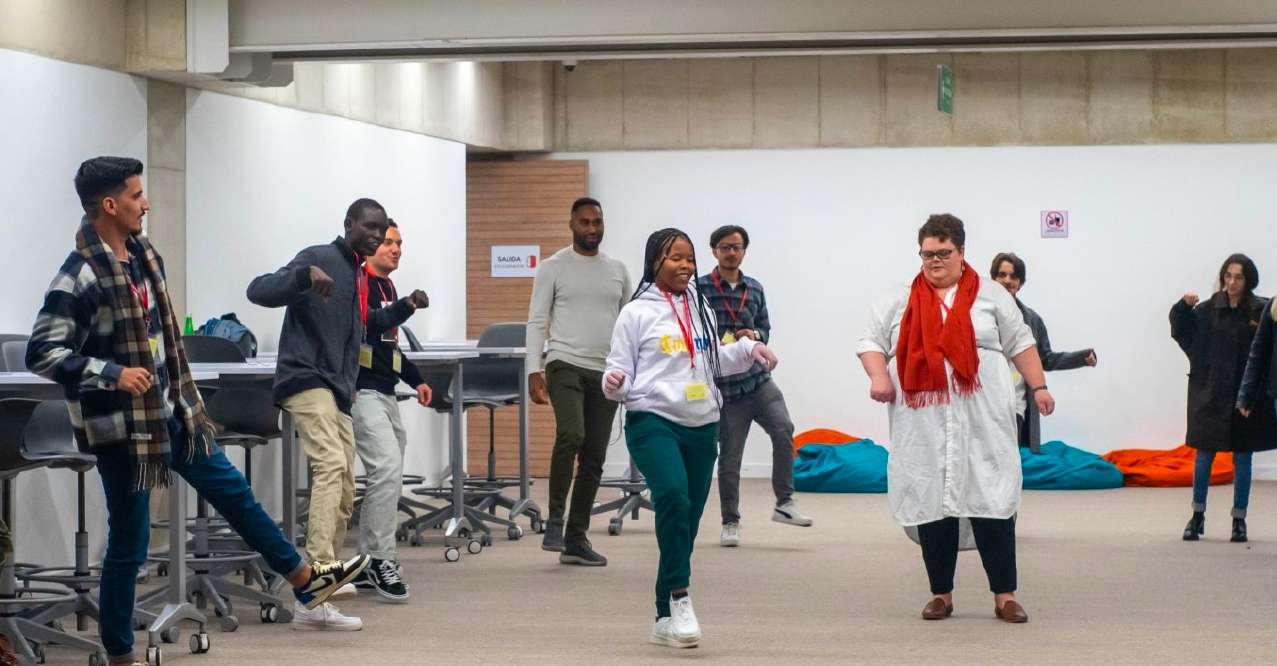
provides valuable support services to vulnerable primary school students aged 6-15 in her local community in Chitungwiza.
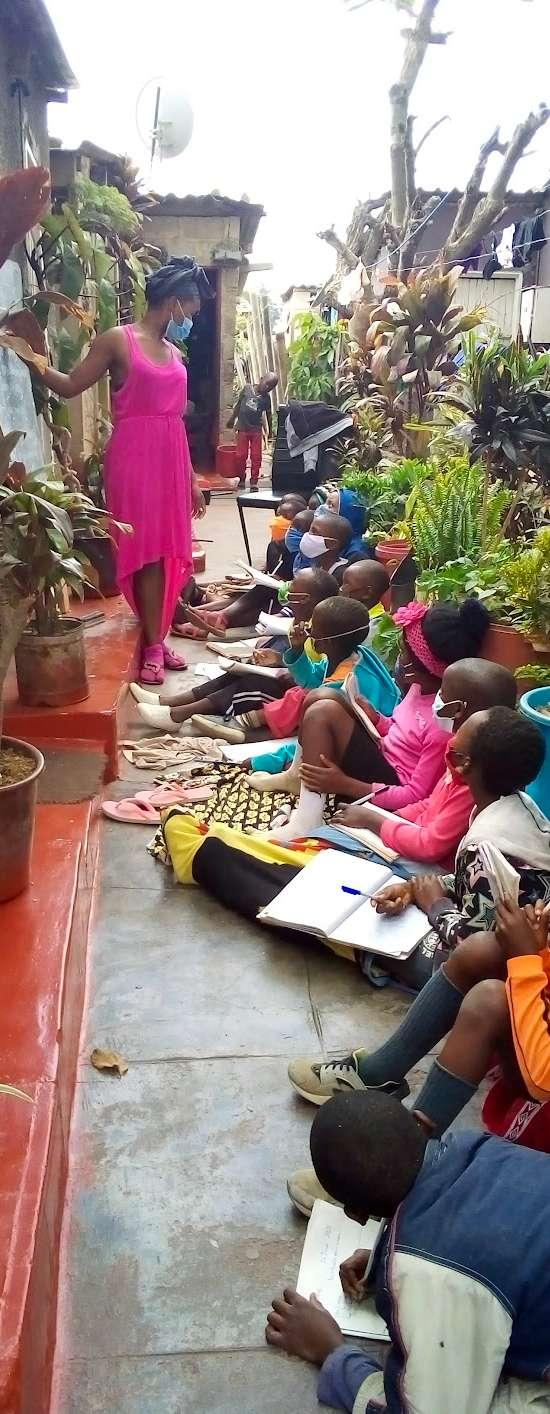

Samantha envisions a world where individuals are not hindered from pursuing their dreams because of their geographical location where everyone has equal access to quality education and resources. In her ideal world, families and societies would value every child's dream; every community would be like one family bonded with love and the power of Ubuntu. She would like to make technology accessible for everyone to use.
Samantha’s inspiration comes from her bumpy ride of seven years of primary education. Growing up in the village of Chibuda, she used to walk barefoot approximately 6 km to school. She also lacked enough learning resources such as books, and she often wondered what the future would look like. Still, she knew she would be great if she relied on education. As a result, she invested effort into being an exceptional student in her community, using the limited resources available.
After completing secondary education, Samantha’s grit and determination landed her the Mastercard Foundation Scholarship to pursue an undergraduate degree at Ashesi University in Ghana. This fueled her passion for starting Aim to Shine and so far the initiative has impacted the lives of over 100 primary school students who have seen an increase in their educational performance. Her passion is to assist students in her community to pursue tertiary education.. She believes education is indeed powerful and can unlock the doors of opportunity.
“Many students have dropped out of school because of the financial burden; something needs to be done."
Yalda Negah is a sophomore at the American University of Beirut (AUB), from Afghanistan and majoring in Political Studies with plans to minor in women's and gender studies As a Global Engagement Fellow, Yalda has demonstrated her commitment to ending gender-based violence through her project, Equal Worlds Yalda works with her colleagues and other students at AUB to share authorized documentaries targeted at educating students on the harmful practices against women, with the aim of safeguarding their security and giving them equal opportunity. Before AUB, she worked with several organizations dedicated to human rights, women's rights, and youth advocacy in Afghanistan. Yalda's goal is to work toward an equal and inclusive community.
Yalda has served in several voluntary roles for over four years, all focused on securing equal opportunity for all people. Launched in 2022, Equal Worlds’ primary goal is to stream documentaries for students on campus to instill in them the importance of promoting equal opportunities for all genders and reducing gender-based violence. A year later, the project has reached over fifty students from various backgrounds and countries who attend AUB.
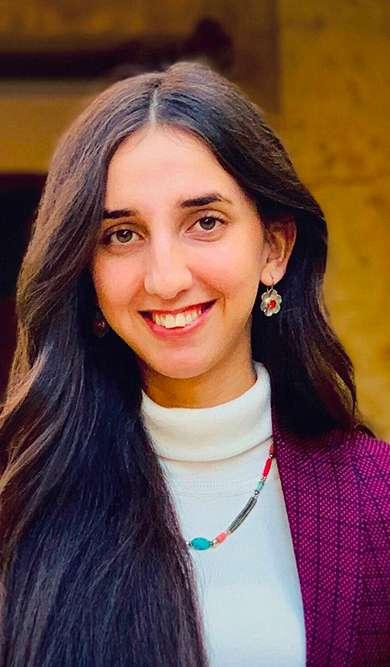

With AUB focusing on promoting student-led social projects such as Equal Worlds, Yalda has taken inspiration from the school to continue building her project In the early stages of the project, she used testing and getting feedback from her colleagues to improve the project She also got the opportunity to brainstorm and collaborate with the Center for Civic Engagement on feasible ways Equal Worlds could be implemented in the school to further transition into society
Every project, according to Yalda, has difficult stages For Equal Worlds, the challenge has been how to bring together students for screenings despite their workloads and schedules But no problem exists without ways of mitigating it, right? Yalda and her team make use of the AUB and Equal Worlds media platforms to inform students about screenings early enough so they can do their coursework in time to view the film
Yalda decided in June 2022 to share her project ideas with other Global Engagement Fellows to discuss how they could be implemented on other campuses Today, Yalda has worked with the AUCA campus to set up the streaming of documentaries to educate other students to promote gender equality and end gender-based violence

"We have aimed to help curb gender-based violence, especially in developing countries, and I hope through my position as a Global Engagement Fellow and a student at AUB, I could secure a network to help us broaden our scope in reaching more developing countries, of which Afghanistan is a part," Yalda shared. Yalda hopes to secure networks with other fellows at different OSUN campuses to start activities similar to Equal Worlds in their countries. With her position and network at OSUN, she hopes to secure grants to help with the expansion.
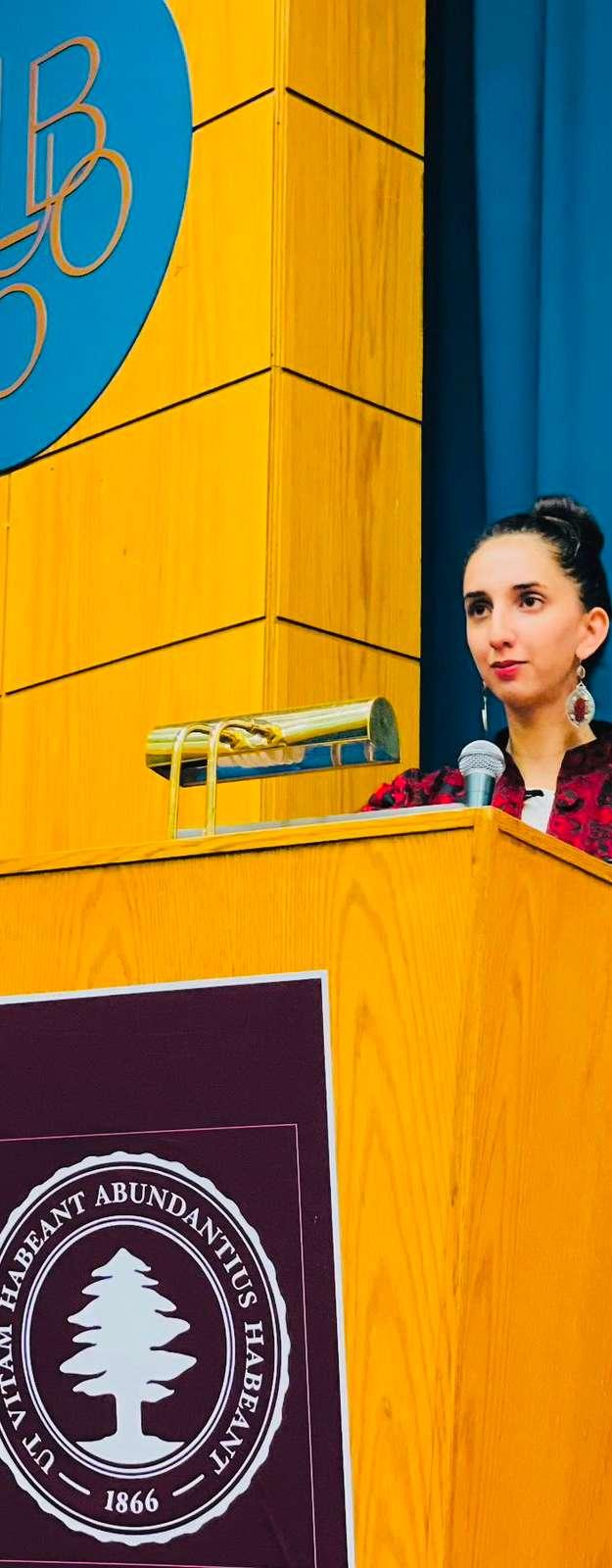
"I dream of working in a sector that helps promote gender equality and curb violence against women in our society. Therefore, working on my project is a way to help me learn more, build myself and convince other individuals and scholars to promote gender equality."
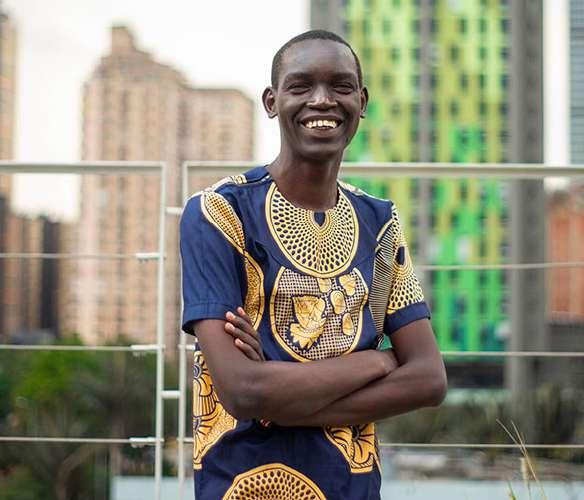
Robert Aharanya Claudio is a student at OSUN Hubs for Connected Learning Initiatives on a bridging program aimed at enrollment in an undergraduate program in the near future A resident of Kakuma Refugee Camp in Kenya, Robert joined the Global Engagement Fellows in April 2022 and is developing a project that addresses the issue of drug abuse in his community and promotes civic engagement in Kakuma
Kakuma, like any other refugee camp, is not the best place in the world to live, given its poor conditions experienced by residents of the camps. Most families depend on monthly food rations distributed by the UN and cannot afford anything apart from the free donations. “Seeing a lot of youths from my community drop out of school because of drugs troubles me,” said Robert. “But education has always been the gateway to a better future for the people living in the camps.”
In a community of 300 families and approximately 3000 people, most of the population consists of youth. About 50 children are doing drugs, 20 children have dropped out of school, and 15 of the dropouts are actively involved in drug abuse. The number of youths taking drugs is increasing at an alarming rate, something which often means their future is bleak.
Youth who use drugs in Kakuma have found themselves on the wrong side of the law, as many have engaged in illegal activities, such as theft and violence. These crimes threaten the reputation of the community. Risk of violence has made people avoid using footpaths in the neighborhood and the community has been blacklisted by the police. “These actions by our youths almost fueled an ethnic war with our neighbors several times. Our community leader, who has been the most critical of their efforts, was assaulted by these youths."
After the community leader`s assault, the community started an initiative to stop these crimes by collaborating with the police to arrest offenders With the help of a disciplinary committee, several offenders have been incarcerated and some have pledged to not commit crimes again Slowly, tranquility is returning to an area once termed a hotspot for crime With his project, which has already taken shape, they will offer enough support for these youths to turn away from taking these harmful drugs, by providing necessary counseling and rehabilitation to those who haven’t been jailed and also who have been jailed once they get out. I plan to help these young people return to school by offering remedial classes, supplying textbooks, and supporting co-curricular activities such as music, art, and sports. This deals with the matter from the grassroots level, to avoid these children from getting into drugs in the future.


Civic engagement, according to de Tocqueville, is the driving wheel of democracy in America. He describes this as he travels around America and tries to comprehend the principles of selfgovernment and freedom in American society. De Tocqueville notices that civic engagement, through associations, is what enables the country to flourish as such. In his book, “Democracy in America” he writes the famous sentence, “Americans of all ages, all conditions, all minds, constantly unite” (de Tocqueville, p. 489). Associations, such as the civic engagement projects that students throughout the OSUN network are creating and participating in, have been at the core of American society from the very beginning.
The student body at Bard College is highly enthusiastic about the topic of civic engagement. Through the Center for Civic Engagement (CCE) and the TLS Trustee Leader Scholar (TLS) program, students establish initiatives and civic engagement projects that are creating real impact in local communities and beyond Some of the biggest projects that have emerged are the Bard Prison Initiative (BPI), La Voz, Brothers at Bard, and the Bard Debate Union, amongst others These projects have not only served the local community and beyond, but have served as an example to other colleges and educational institutions around the globe of what it means to contribute towards strengthening civic engagement in a community
In August 2020, when I first arrived at Bard, I started the Musical Mentorship Initiative with the help of the CCE and the TLS This initiative had an objective to provide free musical education to children from the local community that are financially disadvantaged Back in 2020, I called on my friends at the Conservatory of Music and we organized ourselves to provide this service to our local community Oftentimes, music lessons can
cost from $50 to $150+, depending on the instructor. Therefore, the service that this initiative provides for the community is invaluable. Currently, we have 80 people associated with the initiative and we are working hard on improving the experience, ultimately aiming to make it more engaging and useful.

At first glance, the projects mentioned above seem to provide services only to community members within colleges. However, as de Tocqueville pointed out, they also serve as a tool for strengthening civic engagement within the surrounding local community. These projects allow community members to interact with each other, share ideas, and discuss relevant issues and solutions, which allows local communities and American democracy to flourish
Most importantly, joining a civic engagement project is fun and creates meaningful relationships that can last a lifetime Through the process of serving the community and strengthening civic engagement in our communities, we are able to make meaningful impacts and make new friendships Although there are a million different reasons for joining a civic engagement project, I will leave the other reasons for another time, and encourage you to join a civic engagement project as soon as possible!

Being an impact entrepreneur is tough. There is no secret recipe for success: we must jump through new obstacles daily. However, it gets tougher when we are students and must juggle our studies with our work. No one teaches us how to take the first step in our social impact journey or how to keep solving all the new challenges every day. I have been leading three social impact projects for the last two and a half years. Throughout this journey, I have encountered many tools that helped me move forward. But the most powerful one was an effective partnership between communities, colleagues, mentors, and my university.
One of the projects I worked on during the pandemic was creating a decentralized education hub for the children in my community as all the schools had to shut down then As a part of the project, I organized book exchange events where children shared their favorite books and learned from each other But the problem that I faced the first time I organized the event was that I did not have a team there that could help me execute the project A global pandemic was going on so I could not even reach out to my university friends But the children in my community wanted this to happen
This is where the power of partnership with the community comes into play I partnered up with the children themselves to arrange the event Some of them used their small network to connect us with more people, some volunteered with me to organize the logistics, and some gave me new ideas So even though I did not have a team, the community itself became my team through the partnership we were able to form
Although this is an example of community partnership on a very small scale, it helped me to understand one crucial thing–even the smallest of steps can add up to something very impactful if we put all those steps together. The project I talked about combined all those small ideas and small steps to create an important impact.
All of us experience social issues and challenges in different ways, so when we come together and partner up to think about a solution, those different patterns of thinking add up to a more inclusive way to serve the community. I think our universities should follow a similar model: creating a platform to convene creative minds and change-makers from different backgrounds to co-create an impact
Being a student leader is challenging but there are many ways our universities can help Institutions can create collaborative hubs of impact leaders to mentor them and co-create solutions to create positive societal change It will equip the student change-makers to take on the challenges of being a social entrepreneur and create a strong network of social change
Just as my community partners helped me to connect with more people from their network, with proper collaboration, these small networks of student leaders in each university can connect with each other to expand to a global level to pioneer momentous positive changes! And it all starts with a simple but effective partnership
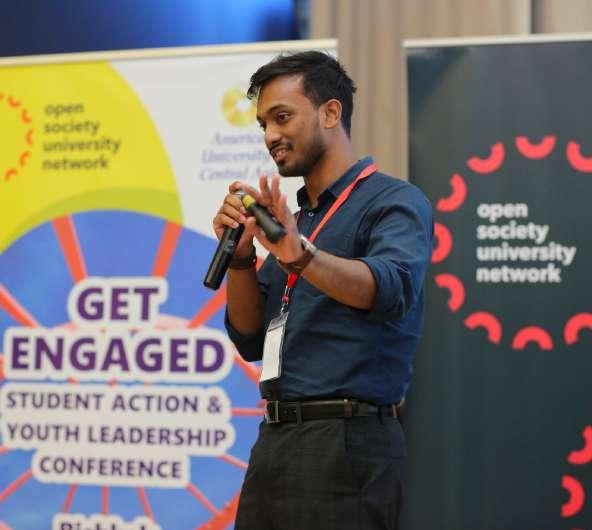

“This is a brilliant project idea! Why did you not implement it yet?” I personally heard this more than once and I know I have given the same comment on other ideas coming from colleagues and friends. Why do these brilliant people, who come up with brilliant ideas, not implement their projects in real life or even think about doing so?
Analyzing the reasons why people refrain from putting their dreams into reality, pushes us to question who these people are, what type of environments they live in, and what their priorities are Looking at this category of people worldwide, we find out that most of them are young adults who have the right skills for carrying out projects However, all of them tend to think of the obstacles that might cross their ways instead of thinking of their potential These people also do not prioritize their projects over their study/work lives Many of them think of what can guarantee them a stable future or income and lean towards picking the safest choice
In Palestine, specifically at my home institution (Al-Quds Bard College), the challenges that face these leading spirits vary in quantity but are similar in quality. There is a sort of discouraging common sense among students at AQB that implies that there is no point behind taking part in civic engagement activities except if you want to have something written on your C.V. Only a few students reach out to understand the actual value that participation in civic engagement projects would grant them. It is understandable why the former category of creative people do not do what the latter does. As students, our concerns, interests, and priorities have shifted from trying to lead change to trying to tackle all the challenges that face us, especially in an occupied country, where even moving from home to college takes a lot of energy and drains our minds and spirits.
Students often fail to see potential in whatever brilliant ideas they havebecause they don’t want to spend the rest of their energy and capacity in projects that do not help them sustain the basics of living. Also, there is a widespread impression that leaders who actually contribute to civic engagement activities are either so smart and do so well in their studies that they have free time available for extracurricular activities. Or that they are so strongly determined to take part in such activities that

nothing can stop them All of these impressions, obstacles, and setbacks persuade creative young people to take a step back, sending them down a path where they feel there is no way they can do better than just thinking or dreaming

I used to feel nearly the same about applying to such opportunities Why would I participate in leadership or civic engagement conferences when I knew that I did not have the time or capacity needed to start up my project and be committed to it? Thinking this way used to bring me some kind of satisfaction, and I know many fellow students feel the same way It feels good to find reasonable excuses for not doing what you fear
Fortunately, the small, close and diverse environment at AQB allowed me to know and talk to all kinds of students, staff members, and fellows, who are enthusiastic about the work they do and encourage students to take part in all activities offered at the college and even outside of it Therefore, getting out of your “friend zone” to venture into more groups who know about these opportunities can benefit you! I saw many students who entered college with high energy and fresh minds end up settling for getting their assignments done and hanging out with their friends I also saw students who were hesitant to even talk, share their ideas, or speak their minds wind up participating in one or two of the varied programs offered inside college or across the OSUN community They have become well-aware of what they plan to achieve and aspire to These students all investigated civic engagement opportunities and then decided to take the lead in creating change. If you ask these students for one key piece of advice, they would always say: go explore what your college offers and ask people in charge of extracurricular activities why they should take part in such opportunities. They will always direct you to open your eyes to another world!
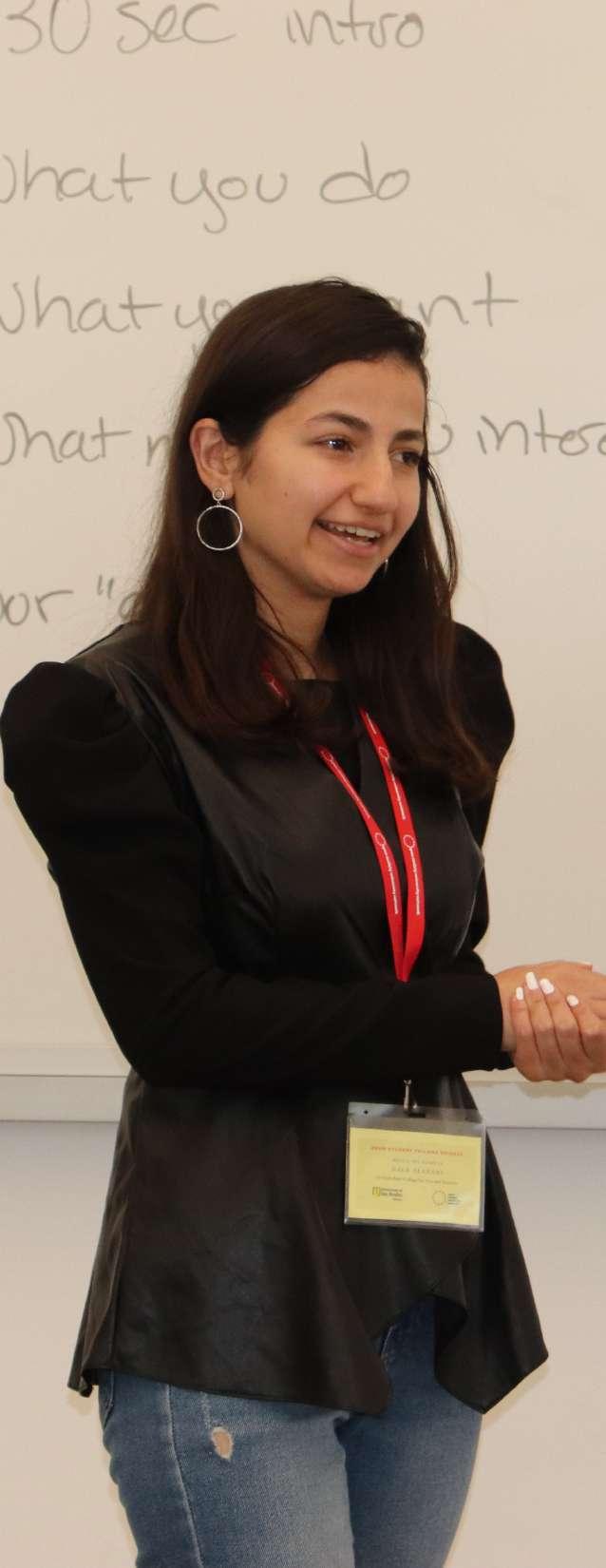
 by Aleksandar Vitanov - Bard College
by Aleksandar Vitanov - Bard College
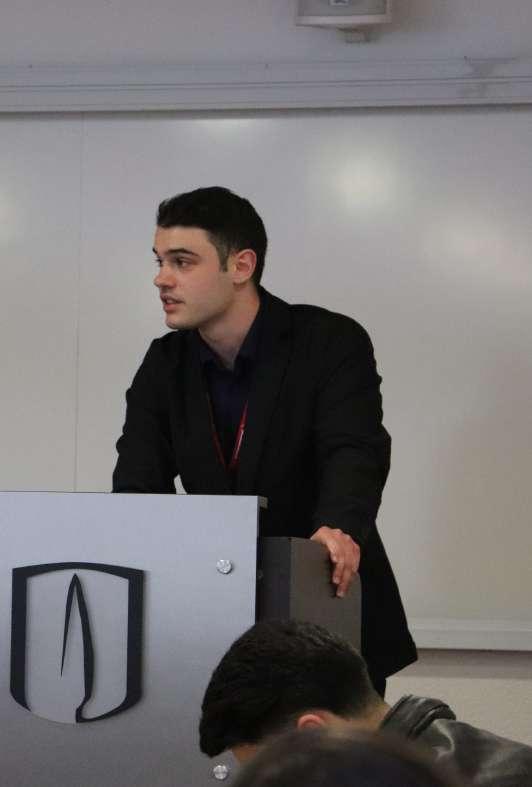
A successful civic engagement project helps community members engage with one another. It took me two years of co-leading a civic engagement project to understand this. I am a fast learner, what can I say?
The Musical Mentorship Initiative strives to provide free musical education to financially disadvantaged children from Bard College’s local community in New York. When I first started developing the project in 2020, only two things were in my mind: a) Look for people that will teach and take lessons b) Grow the project to become as big as possible. With this in mind, I began reaching out to my fellow students from the Conservatory of Music at Bard and we slowly established the initiative. Later on, the focus shifted toward community outreach. All of this was driven by the desire to help.
Fast forward to the spring of 2022, the Musical Mentorship Initiative had 80 people associated with it, some of whom provided free private music instruction, and some of whom received it. On the outside, looking at the numbers, one would assume that the initiative was experiencing amazing growth and vibrance However, if one were to take a deeper look into the interactions between the people that were associated with the project, a different perspective would unfold
As my co-leader Blanche Darr and I were meeting with mentors to hear about their experiences, we learned about many issues that didn’t occur to us earlier Many of our mentors and mentees experienced a lack of meaningful engagement with many aspects of the program, including the private lessons themselves This came as a shock to us and made us seriously reconsider our work approach and focus
What good is it to have 80 people that are associated with an initiative if many of them cannot engage with the program? This is what made us realize that we needed to shift our focus from growing numbers and public facades to helping people get a more meaningful experience through our initiative In the following months, the Musical Mentorship Initiative will create a meaningful experience for people associated with the project This is what will make it a successful civic engagement project

In a world where even A.I. assistants are immediately thought of as females, women have always been, for the most part, pushed into the subservient role and given the shorter end of the stick. A stick that whether you pull or push back is made to scar and beat you. It is no surprise for most that even the most self-acclaimed “progressive” societies are guilty of treating women like they are lesser than their male counterparts, and especially in a complicated patriarchal and heteronormative environment, women are often overlooked and forced to pay a toll they never asked for in the first place.
For me, a part of connecting to my Arab and Palestinian culture has also been through acknowledging the harmful patterns and traditions that people attribute to it in our patriarchal system. As an active young woman in Palestine and also during my exchange year in the United States, I have had my fair share of unpleasant interactions and remarks from those who view what I do as “stupid.” Almost to the point where “this is stupid” has become a motivating sentence rather than an upsetting and uncalled-for remark. imposed submissiveness I experienced in Palestine followed me overseas and online, even leading some to question my identity and whether I belonged to a community that to them seemed entirely “barbaric.” These commentators could not imagine that in a million years that the society I emerged from would allow me to become an active part of an academic community, let alone to be able to make a change on my own.
Of course, one uses the term “barbaric” in a tonguein-cheek manner, as ongoing Orientalist discourse has placed Eastern societies in an overall inferior position, one which imposes even more restrictions and stereotypes on Eastern women. So, in a position where one feels out of place at home and overseas, what does one do? The complicated and unwanted answer is often to persevere and stay “stupid.”
As a young woman participating in youth and civic engagement, I have channeled the same femininity that is used against me in order to attempt to come up with a system that allows me to do what I love while also giving back to the community that I love, no matter how hard it can be. Participating in Al-Quds Bard College’s Debate Union and being one of the co-leaders, for example, I am constantly thrilled to recruit more female debaters and start them on their journey to be able to speak up and have a voice in a world that has continuously worked against us. A small premise and refutation during a debate for us means being able to speak up for ourselves off-campus, unscripted, and unmoderated.
But whether you are arguing about social injustices or collecting donations for a marginalized group, there is simply something so indescribably beautiful about young female leaders putting in the work, going out there, and harvesting the results. Almost nothing is more satisfying than leaving an imprint, embracing your femininity, ignoring the nonsensical constructed gender roles that set you up for failure and force you into a box. If you are “stupid,” own that, and show others how stupid it would actually be for you to acknowledge the power you hold within and yet stay calm and face a wave that is going to eventually and inevitably drown you.
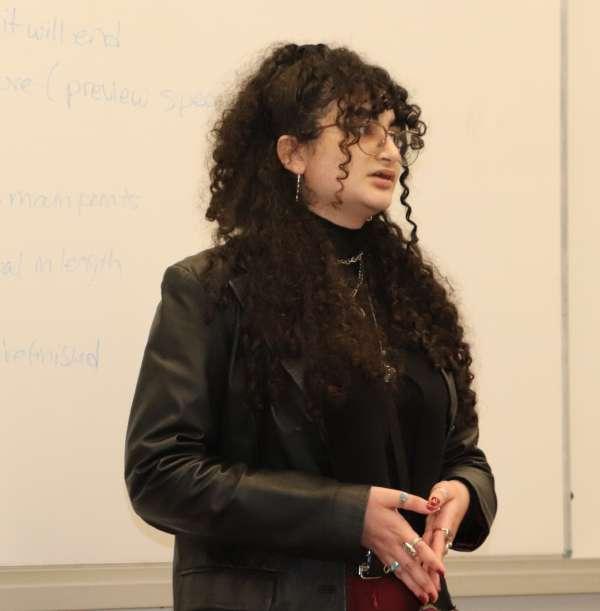

Many individuals and organizations hope for a utopian world without poverty Groups from the West have been making attempts to eliminate poverty in developing nations for decades The swathes of people dedicated to eliminating mass poverty and hunger, improving healthcare, and various human rights causes are participating in the Nonprofit Industrial Complex
The Nonprofit Industrial Complex is a relatively new term used to describe the mechanism used by thriving industries to give back to the world. Wealthy companies donate money and resources to nonprofits to improve their public image, and to invest in developing nations. This is a system of institutionalized charity and development organizations that use donations from wealthy philanthropists, people in powerful nations, and companies to help underserved populations all over the world. Examples of Non-governmental Organizations (NGOs) involved in the Nonprofit
Industrial Complex include the Red Cross, Salvation Army, and Oxfam There are several ways of approaching issues of inequality, oppression, and poverty One approach is to meet the immediate needs of a population by giving resources, like food, water, clothes, vaccines, through charity Another approach is to create development projects that provide regenerative resources to a community so that economic and social development can be sustained after the NGO group leaves. Development projects are the approach I will be discussing today using the example of the Millennium Villages Project.
In 2007, Jeffrey Sachs was sent to Ruhiira, a rural village in Uganda. This became one of the “Millennium Villages,” part of the network of villages receiving foreign aid to promote development across Africa. Sachs initiated several development projects in Ruhiira,
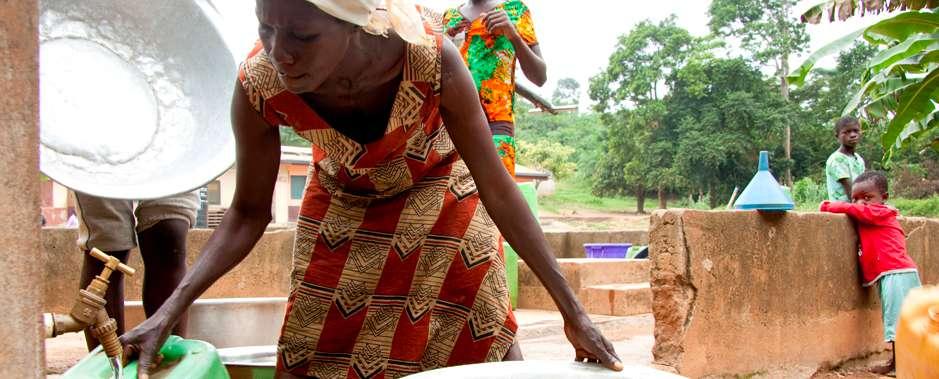
including the allocation of small business loans, implementation of water irrigation systems, and agricultural development The people working on this project did not educate themselves adequately on the conditions of the village before starting work, so there was a lot of incongruity between the development initiatives and the community of Ruhiira

The small business loans that were given out were not paid back because the locals were not educated about the terms of the loan agreements People were often too poor to pay back the loans, even if they did understand the terms of the agreement Because people could not pay back these loans, they were forced to take out other loans with interest rates as high as 7-10% This initiative completely contradicted the goal of eliminating poverty in Ruhiira
Developers ran into many issues with importing infrastructural goods for the water system Shipping was very expensive and unreliable, and the imported water pipes could not be used because they were manufactured for use in the US The developers brought in US pipes to be used in tandem with the pre-existing pipes that were manufactured in the United Kingdom The developers also did not contribute to the local economy, as they imported goods from distant places
To develop agriculture in the village, Sachs and his team gave fertilizer and maize seeds to the villagers to grow cash crops to be exported This was different from anything the villagers had grown before, and it was difficult for them to adjust to this new food cultivation Farmers became completely alienated from their labor because they were growing for a distant market instead of providing food for their community. The demand for these crops did not meet the supply because people did not want to buy food that was not grown organically. There was no system in place for quality control, or storage of the excess supply. Ruhiira was unable to participate in the global market, which is common for poor nations.
Not only do development projects like this often fail, but they are not helping developing nations become economically sovereign or empowered These development projects only perpetuate the system of dependency between the Global South and the West Poor countries need to import expensive goods from powerful nations in order to produce cheap exports to be sold on the global market This imbalance will never be solved as long as we continue to allow capitalist power structures to control the world The Nonprofit Industrial Complex is a pseudoeconomic and social justice methodology As long as powerful nations and companies continue operating in this superficial apparatus, the elimination of poverty will not be achieved


Zarlasht Sarmast is an award-winning documentary filmmaker and recent graduate from the American University of Central Asia, Department of International and Comparative Politics. She has previously served as the Spokesperson for the International Committee of the Red Cross in Kabul, Communication Specialist for GIZ in Central Asia, Voice of America in DC, and many other well-known national and international organizations. Zarlasht is currently working for the Open Society University Network as a Program Coordinator for the Global Engagement Fellows program. She is the Director and CEO of the "Afghanistan Politics on the Verge of the Transformation project." Zarlasht recently finished her first MA in the department of International Relations and Security at the OSCE Academy in Bishkek and is currently doing her second Master's Degree in applied psychology at the American University of Central Asia.
I don't remember much about how it all started. It was chaotic. Chaotic because I am from Afghanistan. My family was there at that time when the provinces were falling one after the other. When Kabul fell, I remember precisely the night before Kabul fell. I had a phone call with the head of the Crisis Rescue Unit (CRU), Mr. Stanikzai. I knew him because when I was in Kabul, my sister and I were doing research for a documentary on CRU for Netflix. They were well aware of the situation, the deals, and everything happening. It was early in the morning. I couldn't breathe, and I didn't sleep that night. I went outside for a walk and to get a coffee.
I called Mr. Stanikzai and asked, "Stanikzai sahib, senga ye? Halat Senga da, Hamkaran sha de?”
He told me it's all going to be over tomorrow. We talked for about an hour. His voice was weighty as if he was controlling himself not to cry. I couldn't stand it anymore after the call was over. I sat down on a bench. I went to Instagram, and my sister posted a photo of the Afghanistan National Army, a group of them walking away from the battlefield without their guns. Their guns were in the hands of the Taliban. Somehow, I was still able to hold it all in. I was very numb. I remember, even during those days, I had a feeling thinking Kabul would not fall, everything would be okay and I could go back soon and see my family. I would Zoom with my family every night and speak with them. That night when the Taliban arrived at the entrances of Kabul, I saw the news. I had a Zoom with my family every day. It was our daily "Family time." We usually started that by taking a few deep breaths and we all started talking about our days because we have been living in different

countries for work and education. That night, when we started to take deep breaths, everyone burst out in tears on the second breath. The feeling of "everything will be fine" was gone from all of us. That is what was happening in every house in Afghanistan that night. The next day Ashraf Ghani fled the country along with his assistants and other close allies and left the country in the hands of the Taliban. The country turned into a total mess, and the situation at the airport was the same as what happened in the last days of the Vietnam War. The pictures and videos were just like the scenes in Saigon and maybe even worse. By August 30th, all forces of the United States government as other countries' military forces, were out of Afghanistan. The Taliban took complete power and freed all their prisoners right away.
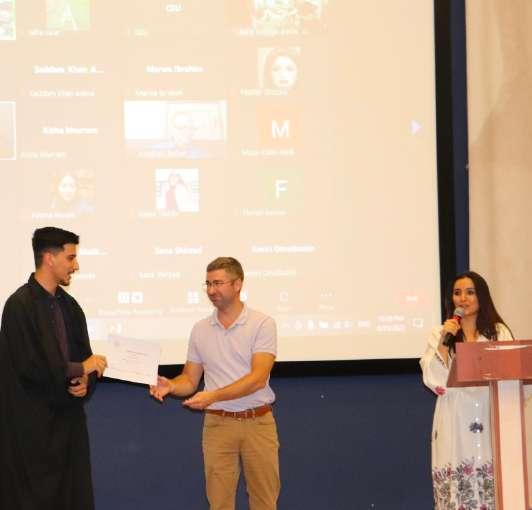
Dr. Jonathan Becker was the one who first proposed the idea of doing something and doing it immediately. Before the whole country fell, I was added to a Zoom call. The call was with the AUCA President Dr. Jonathan Becker, the development office at AUCA, the International Students office, the Finance office and a few others. During the call, the discussion was about getting the AUCA and AUAF students out of Afghanistan as soon as possible. I was so hopeless those days that I honestly didn't believe we would be able to do anything for anyone. The mission got harder and harder as we moved forward. First, Kabul fell, then the airport closed, then the overland borders closed, and this list of things that put our mission next to impossible goes on. For me, it is impossible to find a word to describe my experience being a part of the evacuation team. Being part of such a great team was especially cumbersome for me. I was working on my MA thesis, managing a full-time job and working on a few civic engagement projects of my own and students while my family was in Kabul. Before the Taliban took power, my mother worked as an engineer at the National Radio and Television of Afghanistan. My younger sister who was based in Singapore and studying at Yale-NUS college, went to Afghanistan over the summer to work on a project at Zawia Media, which was also part of the Presidential Palace's communications office. She was working as a researcher and project manager. My younger brother was working in the same company as my sister as an animator. Later, after

the Taliban took power in Afghanistan, my mother was told not to go to the office until further notice, and no one knew when exactly would be that further notice. The same thing happened to my sister. She was supposed to leave Afghanistan and go back to Singapore, where she studied at the Yale-NUS college department of physics and astronomy on August 25th. Like many other students, she was afraid of not ever being able to leave the country again. The only person going to work in my family was my younger brother.
I think the commitment of our team, a month without sleep, putting this mission as our top priority, the help from governmental sectors like the Ministry of Foreign Affairs of Kyrgyzstan, our resilience, and the generous financial support of the OSUN made this evacuation possible. However, if there was one thing that worked like glue to stick everything together, it was the team's commitment.
During the first two months, we couldn't make any progress. Nothing seemed to work. When we had our first meeting, not all the provinces in Afghanistan were under Taliban Control. The Kabul Airport was still functioning normally and there weren't any issues getting out of Afghanistan. However, a few days after we had that first meeting for the evacuation of the Afghan students, Afghanistan entirely collapsed and the Taliban took over. Getting to the airport
was almost impossible, but even then, we tried to see if we could evacuate students by plane and not overland because of the dangers. It didn't work because there were many attacks around and in the airport. Later we decided to evacuate students overland, first to Pakistan and then to Bishkek. That's when the Kyrgyz government banned visas for Afghans. Luckily after some negotiations, they granted visas for the students, and the process started. We formed our team, counted the hours and shifts, and the evacuation began. Being a part of this team was just an amazing experience. It has been the hardest thing I have done in my life. I remember nights when we would just pass out and couldn't continue to stay awake. It was tough because we had a huge group of students to evacuate, and they were all scheduled to go: 10-15 students at a time because of the security dangers on the way.
It was important for me to accept all the challenges and be part of the team. I am from Afghanistan, and I knew most of the people being evacuated. They were my former classmates, friends and family. It became even more critical when I saw the commitment of my American and Kyrgyz colleagues toward Afghan students. They inspired me a lot.
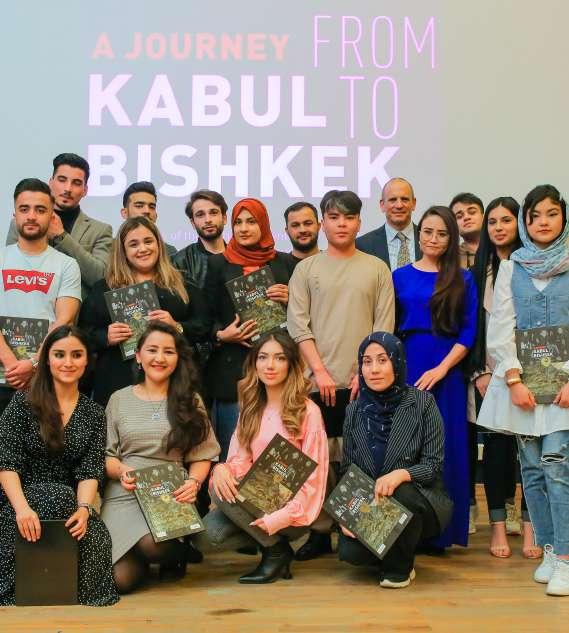
There was one group of students who faced a lot of challenges on the way to the border and at the border too. The border was closed on one of the evacuation nights and the Taliban on the border were not allowing anyone to cross. Our students waited for more than 13 hours even though they had gate passes. They were not allowed to cross the border and this group was around 15 students. My colleagues and I received calls every minute from almost all the students. We were frustrated and tired. I remember I got a call from one of the students saying the Taliban had started whipping and beating the students and others at the border. They sent me some photos and videos. I couldn't watch it. I deleted the photos and videos on the spot, put my phone away, and got out of my apartment. I sat in a small park in front of my live block and cried for two hours. I wanted to run and scream and leave everything behind… I sat there for a few more minutes, calmed myself, and then returned to my apartment and started working. Our students in that group couldn't cross the border that day. They all went back to their homes, hopeless. Some of them had come to Kabul from the provinces. That was the moment I was feeling very down and out of energy.
The happiest moments were when the first group of our students crossed the border and made it to Pakistan. We thought, "We did it and we can get all the students out now." The second happiest moment was when the first group of students arrived in Bishkek and were picked up at the airport by our colleagues from the International Students Office.
Now that our students have made it out of the country, we need to ensure we can help them in the following steps. There is no way they could go back to Afghanistan. At least, not now. There was a need for finding funding resources and ensuring the students are getting the support they need to secure fully funded academic programs or find jobs.
If I could describe my experience throughout the evacuation process in one sentence, I would say it was a very long, scary, exhausting, yet exciting roller coaster ride.

At the end, I want to dedicate a poem by Mario Benedetti to all the people who made this mission possible and thank them for being the kind of people that I like:

I like the people who vibrate.
The people who you don't have to push and tell them what to do. They know what needs to be done and do it.
The people who cultivate their dreams until those dreams take on their own reality. I like the people who have the capacity to measure the consequences of their actions.
The people that risk the certain for the uncertain when chasing a dream.Who allow themselves to get away form sound advice leaving the solutions in the hands of God.
I like the people who are just with their peers and themselves.
The people who are thankful for every new day and for the good things that exist in their lives, who live every hour with a good spirit, giving the best of themselves, thankful for being alive, for being able to give away smiles and to offer a helping hand without expecting anything in return.
I like the people who have the capacity to criticize me, constructively and to my face, but without hurting or wounding me. The people who are tactful. I like the people who posses a sense of justice. It is they who I call my friends.
I like the people who know the importance of joy and practice it. The people who through joking teach us to live life with humor. The people who in this sense, never stop being child-like.
I like the people whose energy is contagious. I like the people who are frank and sincere, capable of opposing the decisions of anyone with reasonable argumentation. I like the people who are faithful and persistent, who don't give up when it comes to reaching objectives and ideas.
I like the people with criteria, who aren't ashamed of admitting when they are wrong or when there is something they don't know. The people who, after acknowledging their mistakes, genuinely strive to not make them again.
The people who fight against adversities.
I like the people who look for solutions.
I like the people who think and meditate internally.
The people who value their peers not because of a social stereotype or how they look. The people who don't judge or allow others to judge them.
I like the people who have personality.
I like the people capable of understanding that the biggest mistake a human being can make, is to try to take away from his mind that which won't leave his heart. Sensitivity, courage, solidarity, kindness, respect, tranquility, values, joy, humility, faith, tact, confidence, hope, appreciation, wisdom, dreams, regrets, self love and love for others are all fundamental in order to be called PEOPLE.
I am committed for the rest of my life, for anything, with people like these. Just for having them with me I'm well remunerated."

In the rural areas of Kenya, there are very few opportunities for women to be educated. When there is not enough money to send all the kids in a family to school, the boys are prioritized. Boys are raised to be providers for their families, and girls are raised to be wives and mothers. Girls’ access to opportunities for education are even further mitigated by sexual violence, sexually transmitted diseases, teenage pregnancy, and child marriage.
Teenagers are vulnerable to unintended pregnancy and STDs because contraception in Kenya is inaccessible. “Abstinence only” sexual education is prominent because of religious presence in schools, and anti-abortion laws govern responses to teenage pregnancy and pregnancy due to rape. In Ganze, a region on the Kenyan coast, there have been up to seven rapes per week recently, according to police reports. There are no repercussions for the offenders, and the written legislation is not carried out by the judicial system. The men walk away unpunished, and the women are left in isolation to deal with the consequences and trauma caused by these incidents.
The Massai tribe is a pastoralist community and they are traditionally nomadic. In the Massai tribe, child marriage is customary. Traditionally, girls as young as 12 are married off to elderly men. The tribe also practices genital mutilation of young girls on
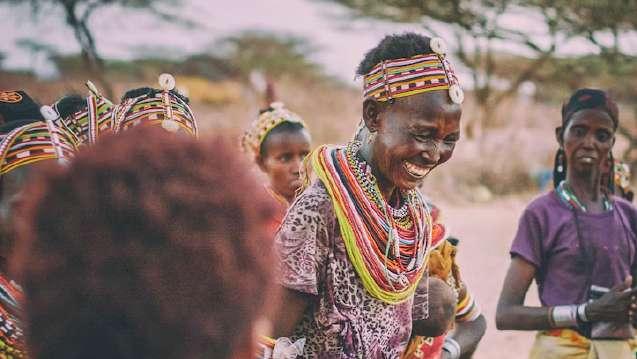
their wedding day. There is very little action taken by law enforcement to end this abuse of girls and young women. The organizations and social services offices in Kenya are also not doing enough to address all of these issues impacting women. Gender equality is not a priority for Kenyan constituencies.
I have been volunteering at a primary school in Ganze for the past couple of years. I have been raising money to support students and improve the physical campus of Arlose Ganze Academy, which is committed to addressing issues of gender inequality and violence against women. A dorm for the girls who are boarding students at the school is currently being constructed. This dormitory was created because the girls are currently being housed outside of the compound, and have to walk to school before the sun comes up to get to class on time, and walk home alone late at night after their last class has ended. The school has used money raised on GoFundMe to build a new dorm that will be large enough to house dozens of girls, and will hopefully allow for more girls to enroll in primary school at Arloste Ganze Academy. The school would might also house victims of sex crimes and child marriage, teen mothers, and girls experiencing abuse. The dorm will serve as a safe haven for girls and young women who have been unable to continue schooling elsewhere.
Arloste is also committed to following up with local law enforcement and public agencies to ensure that people engaged in abuse of and violence against women and girls are punished. While there are people available to help vulnerable girls by giving them shelter, food, and childcare, there needs to be a systemic shift in the way women and girls are treated in Kenya. This is the mission that the academyis pursuing, as it begins to change the structure of public assistance and the judicial system. Arloste wants to transform these systems in order to create infrastructure and services to help young women prosper and to hold individuals responsible for gender oppression accountable for their actions.

Dadaab Refugee camp is a region located in Northeast Kenya. There are three refugee camps located within the region of Dadaab. These include Ifo, Dagahaley, and Hagadera, which are the oldest and the largest of the camps. Dadaab crosses over 50 square kilometers in eastern Kenya. It was established in 1991 as a response to the inflow of Somalis, Sudanese, Ethiopians, and Ugandans fleeing their homes in the midst of civil war. As of today, it holds around half a million refugees, according to the UNHCR.
Refugee communities living in Dadaab Camp believe education is the only way to mitigate problems such as poverty, conflicts, and health concerns. There is no higher education institution in the camp recently, so students have to move to other parts of the country to get an education. However, the majority of students face challenges and cannot leave the refugee community.
The financial burden challenges the possibility of higher education for most families here. UNHCR, the only organization that supports refugees in the camps, only budgets for primary and secondary education and cannot guarantee beyond these levels. Without financial capacity, thousands of students have to find alternative jobs to earn a living and share the burden with their families, once again setting a new loop of social issues in Kenya. Very few learners will go for secondary education and others make excuses such as, “ If there is no university, why do we waste our time?”
Completing secondary education alone is not sufficient, as those who do are limited to working with organizations paying low wages, or they sometimes fall into drug abuse due to despair. . Due to financial limitations and lack of further educational support, some of the young people give
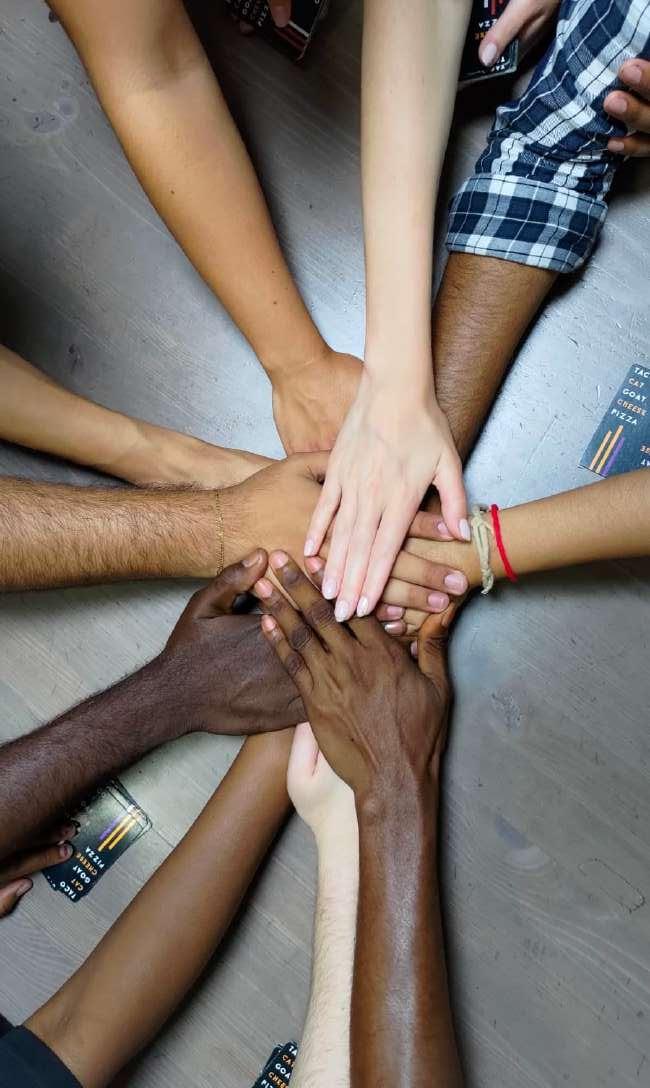
up on learning. Those who get opportunities, such as bursaries or scholarships to study the interior Universities in Kenya face challenges such as police brutality.
University education in Dadaab is a significant resolution to overcome the existing challenges facing young people living in the Dadaab Camp. Somalia and other countries of origin are still not a safe place to return to. Higher education in the camp goes a long way toward preparing students for a future within Somalia, Ethiopia, southern Sudan or other countries that will contribute to rebuilding their homeland.
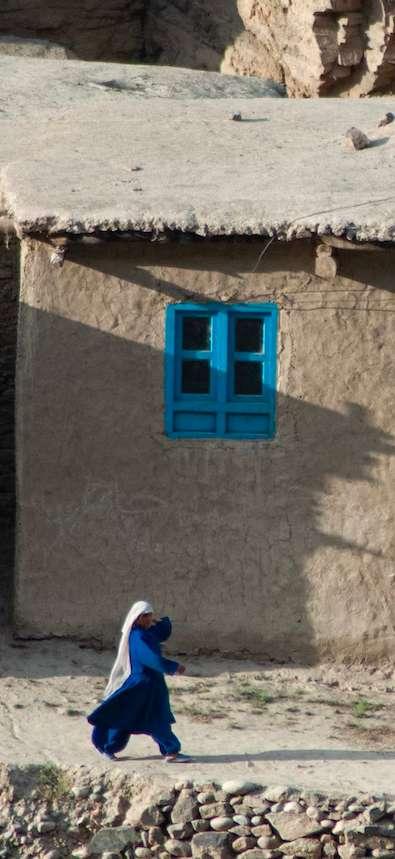

Afghanistan, a country with a long history of war, is one of the most challenging places for women, particularly after the Taliban seized power on August 15, 2021. Restrictions on women and girls were imposed, including attending school, style of dress, not having the right to travel alone, and an endless list of other restrictions. Women in Afghanistan live a life full of fear and doubt, a life where they do not know what will happen tomorrow, what to do, and how to live with the dreams that didn’t come true.
Women in Afghanistan struggle to obtain the fundamental rights that every human being is entitled to and they continuously lose ground every day living in an unequal world. Such a life is difficult to imagine, but Afghan women are currently experiencing it. We are in a world where discussing women’s rights, gender equality, feminism, human rights, freedom of speech, and all related topics has become a trend to talk about, but when it comes to the ongoing situation, it feels like no one is seeing. But still, Afghan women are striving to achieve their rights as they protest in a country that considers protesting a crime rather than a social movement. After the collapse of Afghanistan, all restrictions were a way to make women invisible and voiceless. Everyday rules are becoming more restrictive to eliminate women from public spaces.
After the Taliban seized control of Afghanistan, the government forbade girls from attending school and prohibited women’s access to higher education. It is devastating that in 2022, girls are not allowed to go to school, and Afghan women must strive to uphold a right that they already had. Afghan women experienced the grim reality of a hard life under the Taliban when they took over the country for the first time. Now, after two
decades, they come again with the same ideology that girls should not be a part of society or get an education and work Since 2001, Afghan women have struggled to achieve their rights and freedom, lead their lives, and be active citizens of their country, but the current situation is like losing the effort of two decades in a day and being forced back into darkness.
While the Taliban have not changed, the truth is that Afghanistan's new generation has changed since 2001. They are aware of their rights and are courageous enough to speak up. They are determined to pursue knowledge and freedom. Despite the obstacles in their path, Afghan women started protesting and organizing movements to fight for their rights after the restrictions imposed by the Taliban.
Women in Afghanistan need to be supported by the international community. Everyone who supports human rights and equality and considers themselves opposed to this unjust situation should speak out and take action, no matter how small. International organizations and NGOs have criticized the Taliban's oppressive laws for violating human rights and organizations such as UN Women say the advocacy of Afghan women should be prioritized above all else.
It is promising that Afghan women are resisting, but in order for their voices to be heard so they motivate effective collaboration with civil societies, they must be supported as one concerted global act
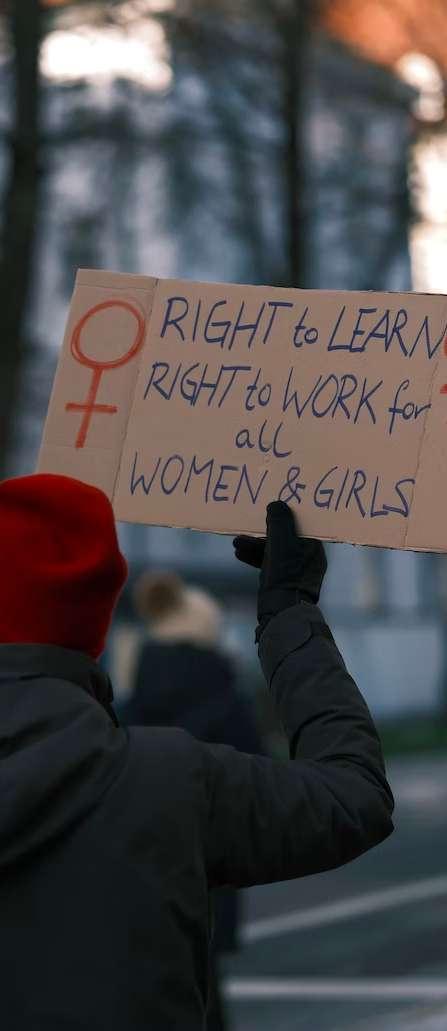

"Every day, we are advocating for restoring, protecting, and promoting the full spectrum of women’s and girls’ rights and creating spaces for Afghan women themselves to advocate for their right to live free and equal lives."
ALISON DAVIDIANCOUNTRY REPRESENTATIVE FOR UN WOMEN IN AFGHANISTAN Source: Nk Ni @nkhasebe | Unsplash
 by Hala Alanani - Al-Quds Bard College for Arts and Science
by Hala Alanani - Al-Quds Bard College for Arts and Science
“Oh, I got it” Hearing this really makes me happy when I am explaining something to someone who I know is interested in what I am saying. During the two Global Engagement Fellows workshops I facilitated “How to write a project proposal” and “How to set a goal for your project” - the above three words were the best part. That is what the monthly civic engagement workshops do best: gather those who have expertise in certain fields with those who are most interested in their experience, so they can share their thoughts on the chosen theme. Every month, a workshop is conducted with a new theme and a space to share lessons and learnings. The idea behind facilitating a monthly civic engagement workshop is to help build social projects in the most achievable way possible, and to connect social project leaders together with those who have a leading spirit to lead a civic engagement project in their chosen fields.
The workshops I conducted were active and engaging, despite a modest number of participants. Learning how to set goals for your project, learning the characteristics of these goals, and learning how to write project proposals are essential steps leaders must take together so they can achieve their common objectives. I also think the presentation slides presented in the monthly workshops were catchy, informative, and engaging. Such workshops are important for learning how to lead and seek answers to the multiple questions that arise with student projects. The workshops also help guarantee sustainability, apply to people in different places and backgrounds around the world, and can be used for future reference.
“This workshop is needed for everyone who has been longing for change,” is another comment I received during a workshop. Youth empowerment for leading change is one of the key goals of the Global Engagement Fellows. If you do not have enough information, resources, or professional advice for your project, you can always use these workshops to learn
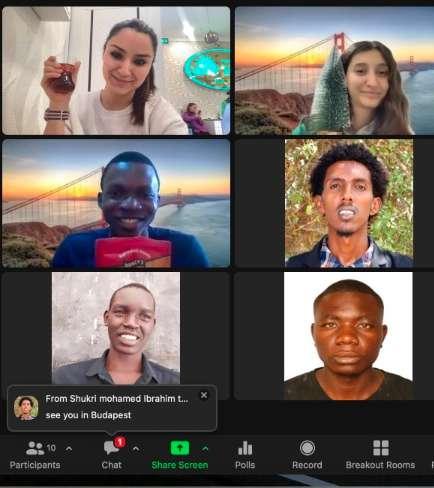
more and seek assistance. The fact that the online monthly workshops get repeated annually is also very useful as students can gain updated knowledge from them every year.. Additionally, these workshops involve those who come from excluded backgrounds or who have less luck in getting exposed to such programs given their regional and geographical restrictions. The workshops give an equal opportunity for everyone to join and be part of creating a change.
In short, the monthly civic engagement workshops are opportunities that are open to everyone who seeks assistance and knowledge. Gathering young leaders who are eager for change with those who have some experience in the field is a powerful way for exchanging experience and knowledge. Monthly civic engagement workshops open the door for better-organized future leaders who know what they want to do and how to reach their aspired goals in the best ways possible.

I was told about the Get Engaged conference when my application was first accepted as a Global Fellow from American University of Central Asia At that time, I didn't know it would be such a huge conference that included such a diverse group of students from across the world I was impressed when I met all the individuals from different institutions across the OSUN network
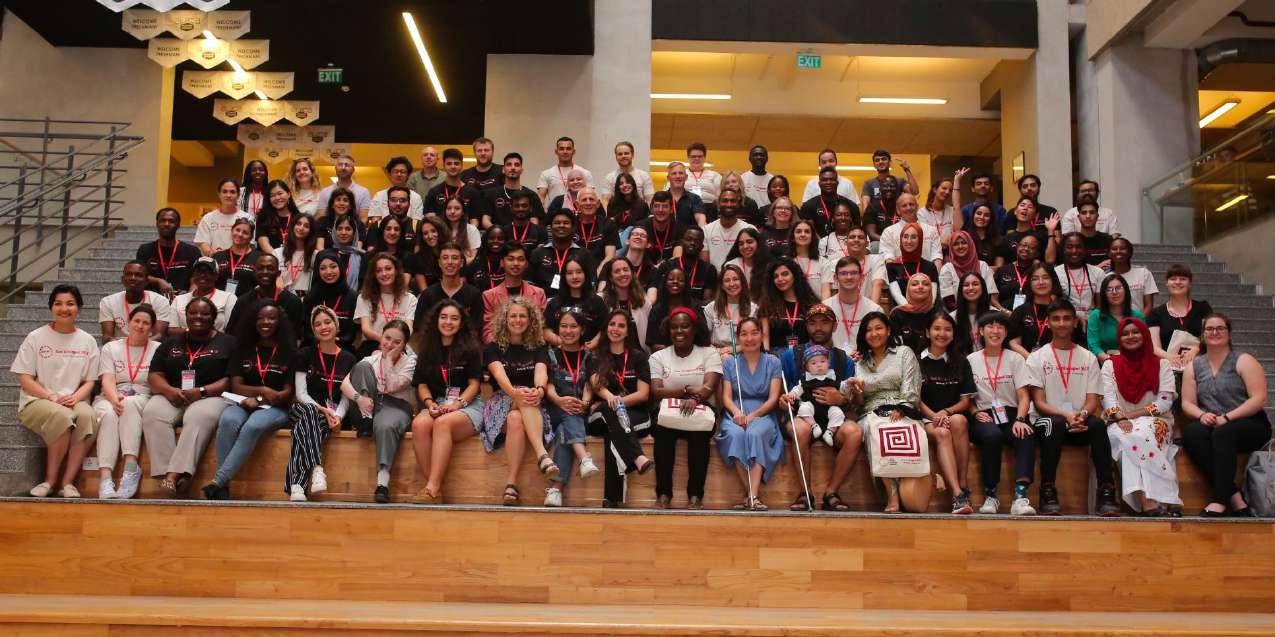
It all started when I was asked to join a meeting with other organizing committee members from AUCA I went to the meeting and met other team members from AUCA's Center for Civic Engagement We were all thinking about ways to have a warm welcome for all the students We gathered on the second floor of AUCA first, and had an info session about the agenda of the GE conference At the meeting, the Center for Civic Engagement director, the Global Fellows Program Coordinator, and some other volunteers and student facilitators were present
My job as a Global Engagement Fellow was to pick up different groups of students from the airport, which is about an hour away from where I live Before going to the airport that day, we were asked to prepare snack bags for the arriving students It was a lot of work We had at least 100 people to pick up at different times from the airport, and we had to ensure everyone received the welcome package We prepared everything and left it in the car We went to the cars at midnight and headed towards the airport to pick everyone up I was kind of scared thinking, “What if I couldn't find the people I had to pick up? What if something goes wrong?” However, transportation was arranged by AUCA for us to go there I was a bit overwhelmed and thought perhaps I had bitten off more than I could chew However, when I went to the airport, I met with all the students and dropped them off at the hotel It was just a great feeling to see how happy they were to have arrived in Bishkek and welcomed the way they were
Throughout the conference, all Global Engagement Fellows from AUCA and other institutions worked closely with the students to make sure they were ready for their presentations, were not lost, and were aware that they could reach out and ask any questions they might have. We worked closely with the coordinators and the students, helping them practice, keeping time, etc.
Before the conference, I had been part of many other civic engagement projects and extracurricular activities, but this was a different experience. I learned a lot about leadership and connected in person with many students from across many institutions at OSUN. Get Engaged 2022 was an eyeopening experience for me as a young leader and I was able to develop valuable skills, such as networking, public speaking, organizational methods, and working under stress.

The most important and interesting part of the conference for me was hearing all the presentations by students from other institutions. I was amazed by these incredible groups of young leaders motivated to bring about positive change in the world. I heard stories of leadership under conflict, in underdeveloped countries, and in times of crisis. The presentation that stood out for me was by Michael Mugisha, a student from Ashesi University. He is leading a project for students who don't have proper access to quality education in Ghana.
There were many takeaways for me but the most valuable lesson I learned from these young, passionate leaders was this: no matter how small or big the change is, it is important to know that what we do, what we say, and how we act all make a difference Therefore, as young educated people it helps to be mindful that what we do or say should point us toward making a positive change for the greater good. The Get Engaged conference is the perfect place for young leaders to be reminded that their civic engagement work is important and worth sustaining.
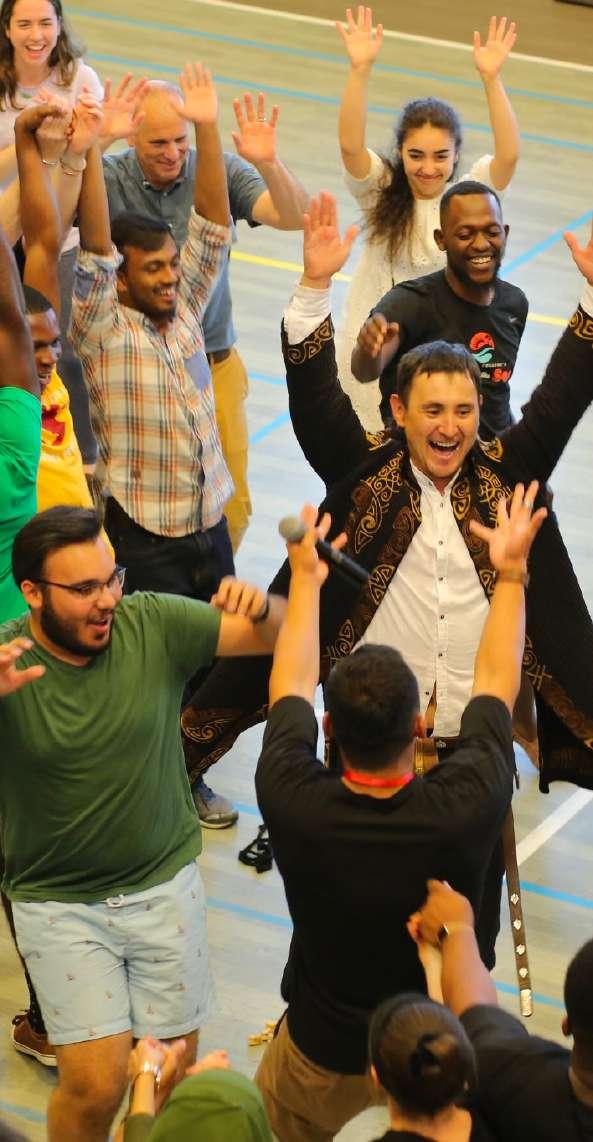
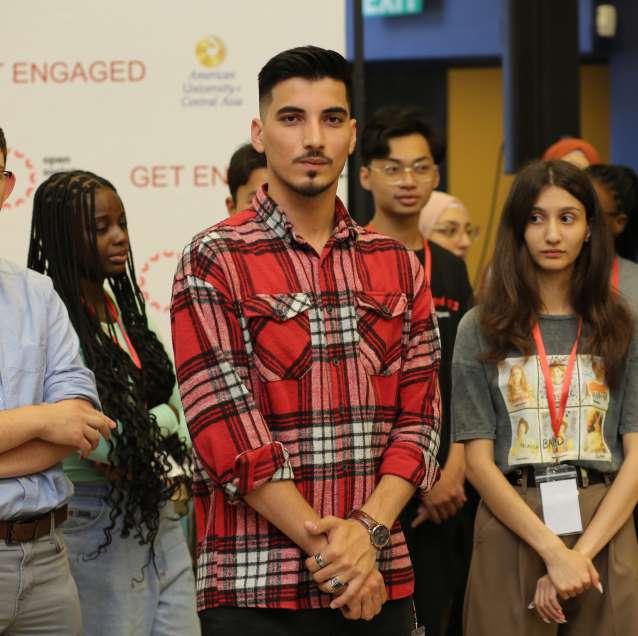
The Open Society University Network (OSUN) is a hub for students from universities around the world. From founding initiatives to target inclusivity in communities to fostering dialogue on global public health and current affairs, students across the network have always engaged in impressive projects. So, it was no surprise that the Global Commons was created.
In my African culture, the Ashanti, there is a colorful, intricately handwoven cloth named the kente. The kente is a combination of a plethora of strands of beautiful threads from different origins. When these strands of thread are woven together, they make a thick bundle of cloth that is fit for royalty. As a Content Editor, this is how I have thought of the work we have done at Global Commons, where multiple voices from different origins telling different stories are seamlessly edited into a digital magazine.
The Global Commons elevates student perspectives and ideas on topics such as climate change, inequalities, human rights, international justice, international public health, arts and society, and liberal arts and sciences. The content of Global Commons, which includes essays, articles, creative writing, and artwork, is exclusively contributed by students from OSUN partner institutions. The twice-
yearly publication encourages students to submit work in any language and from any genre, providing them a chance to grow as authors, leaders, and citizens of the world.

Besides a diverse selection of content, the Global Commons also has a diverse Editorial Team. For the 2022 Spring/Fall Issue period, the team consisted of:

Hephzibah Emereole, our ambitious and proactive Managing Editor from Nigeria
Maimuna Alam, our tranquil and loveable Content Editor from Bangladesh
Miles Masters, our quirky and trusty Content Editor from the US
Maxine Brenya, our creative and soulful Content Editor from Ghana
Abdullah Nasser, our ever-so-funny and innovative Design Editor
With guidance from the Advisory Board, the Editorial Team has curated an intriguing mixed basket of stories, articles, research, essays, art, photography, poetry and videos. OSUN congratulates the students who submitted their work and recognizes the editorial board's outstanding efforts and commitment in creating the issue. Follow us for more!
 by Sayed Anwar Ibrahimi - American University of Central Asia
by Sayed Anwar Ibrahimi - American University of Central Asia

On August 22-23, Afghan students from the American University of Afghanistan, American University of Central Asia, American University of Beirut, Al Akhawayn University, Bard College Annandale, Bard College Berlin, and Central European University came together with fellow Afghan students across the world to discuss their ongoing challenges and resources available to support their ideas through creative problem solving and peer support. More than 250 Afghan students gathered in a hybrid format, and 12 students presented civic engagement projects they are implementing to support students on their campuses or across the network, including those who remain in Afghanistan The Afghan Students Conference served as a platform for coordinating cross-network activities to promote cooperation and ongoing connections The Global Engagement Fellows Program Coordinator and Global Engagement Fellows across the OSUN network led this conference
During the conference, all seven institutions prepared a conference room for students from their universities to meet in person however we also arranged a Zoom meeting for all participants to connect online Throughout the conference, we conducted workshops that covered the following topics: grounding practices, resilient relationship
communication, how to start a civic engagement project, how to take your first steps, team organization, and teamwork The presentation of 12 civic engagement projects was the most important part of the event as it allowed students to learn about and join initiatives, furthering their connections. . At the end of each day, open mic and Q&A sessions furthered discussions between the students.
We organized a post-conference networking session for the students to connect and have internal discussions where they could brainstorm ideas on how to stay connected. While the conference’s expert-led workshops and student presentations were valuable, they left little time for students to have long discussions during the conference. Once again, we had all seven institutions come together in a hybrid format and join the networking session.
Our organizing team is now working closely with all participants from their institutions to ensure that students use the project awards to develop their projects further and connect with other Afghan students across the OSUN network.
As a Global Engagement Fellow and one of the conference organizers, I learned a lot about the Afghan community outside of AUCA in other OSUN institutions. It was my first time working with a team of young leaders from Afghanistan, and we had so much to talk about. It was an unforgettable experience for me, and I imagine everyone who took part in this conference feels the same way.
Jonathan Becker is the Interim President of the American University of Central Asia (AUCA), the Vice Chancellor of the Open Society University Network (OSUN), and Bard College's Vice President for Academic Affairs.
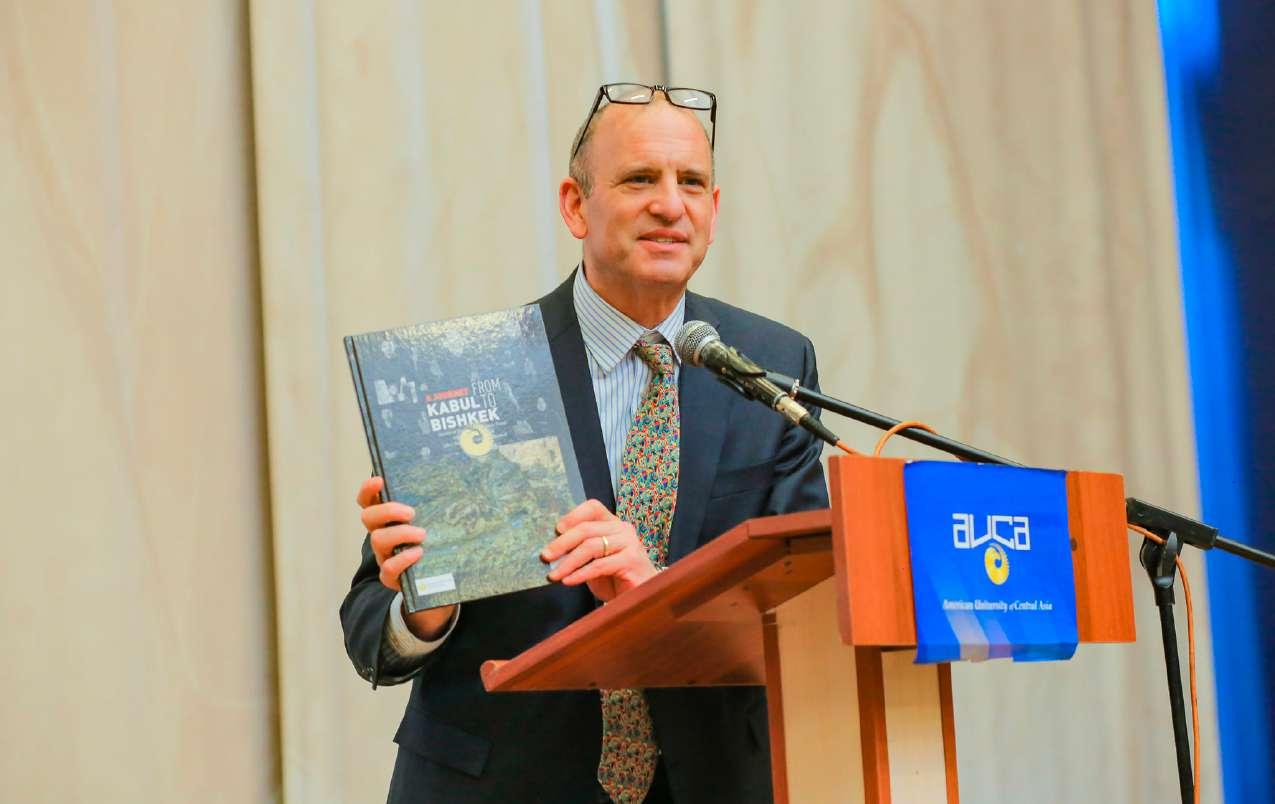
I have worked with Afghan students for many years at AUCA, where I am a board member and Interim president, a position I also held in 2018-2019 Afghan students also participate in civic engagement activities within Bard's undergraduate liberal arts network Many AUCA and American University of Afghanistan (AUAF) students have enrolled in OSUN online courses that I co-taught last spring and summer.
My involvement with planning for new support for Afghan students began in June 2021, even before it was clear that an evacuation might be needed. The US had reaffirmed its plans to leave Afghanistan in April and. while there was a general belief that there would be a difficult post-US transition, the view expressed by many “experts” was that the government could hold out at least a half year, and likely longer. At that time, I approached Alex Soros and other leaders in the Open Society University Network about setting up a scholarship

program to welcome back Afghan graduates of AUCA BA programs into its MA programs. Alex responded positively and almost immediately. We set up an Afghan response team at AUCA consisting of such major offices as International Affairs, Alumni Affairs, and Academic Affairs, to be responsible for outreach and planning, and brought in staff at Bard College to help with logistics.
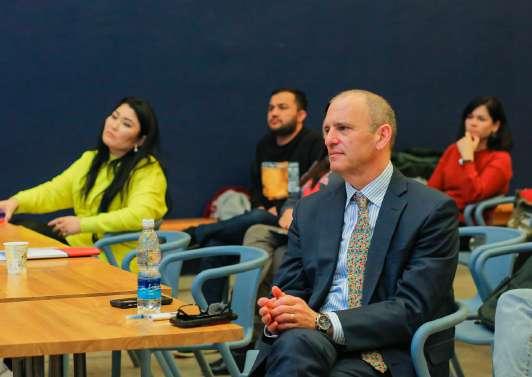
We were moving ahead with advertising graduate programs for alumni of AUCA in early July when events in Afghanistan accelerated. I taught an OSUN summer course on civic engagement which had a number of Afghan students enrolled, and they reported on Taliban advances, including attacks on their homes and those of friends and loved ones. A journalist friend with great experience in the region, George Packer, warned me that time was shorter than estimated (although even he was ultimately surprised by the speed of the Taliban takeover). He advised that I read Thurston Clarke’s book, Honorable Exit, about the end of the Vietnam war, which focused on efforts by Americans to evacuate Vietnamese friends and colleagues in the weeks and months leading up to the US exit from the country.
Clarke’s book vividly demonstrates the most important lesson that shaped our approach to assisting Afghan students throughout: determined people have the capacity to influence outcomes. In a class on Civic Engagement taken by many Afghans, we teach that individuals have agency; they are not simply beholden to forces beyond their control. More specifically, Clarke demonstrated that in chaotic moments such as military retreat, you cannot rely on governments, particularly senior officials, who have their own priorities. Instead, you must take control of your own fate and that of others about whom you care. This might mean working with mid-level government officials willing to ignore their superiors, as Clarke wrote, or civil society networks, as we discussed in my Civic Engagement class. Clarke made clear that in order to succeed in such chaotic times, you need to be prepared to improvise, take risks, and refuse to be deterred by authoritative voices telling you something is

impossible because passivity leads to failure. You need to try multiple approaches and be willing to take steps without knowing for certain what comes next. Moreover, you can not be deterred by failure. Clarke offers a sober reminder of what was at stake by tracking the lives of those who were evacuated and those who were not. Sadly, we had a glimpse of this a year earlier, in the summer of 2020, when AUCA graduate Natasha Khalil was murdered in Kabul while she was working for the Afghan Human Rights Commission.
In early August, as the Taliban swept across the country, we were acutely aware that if they took power it would have tremendous negative consequences for the well-being of our graduates and the educational futures of all Afghans, especially women, who constituted a majority of our students. The first several weeks of our work, from mid-August to early September, were largely unsuccessful. Not only had we been unable to get our graduates out of the country, but some of our undergraduates who had yet to leave Kabul had flights canceled and were now stuck in-country. Twice in the waning days of the American presence we and our partner, the American University of Afghanistan (AUAF), had students on buses ready to go to the airport, but both times we could not get permission from senior US authorities to gain entry, so both trips were abandoned. When the Pentagon announced that the last US troops had departed Afghanistan, we had not evacuated a single student. It was extremely disheartening. We had
spent two and a half weeks with little sleep, contacting government officials who were unable or unwilling to offer assistance, trying to procure access to busses and airplanes at usurious rates from merchants, and exploring details of various border crossings.

country. A Finnish security firm, which was recommended by OSF, arranged ground transport that could navigate around and through Taliban checkpoints. Bryan Billings from Bard College became the master of maintaining accurate lists of students and coordinated between the security firm, Omar, AUCA, and me. AUCA’s International Office, led by the tireless Aselia Umetalieva, kept in close contact with students to arrange the difficult and everchanging tasks of coordinating departures and meet-up points, aided extensively by Zarlasht Sarmast, an OSUN Civic Engagement Global Fellows Program Coordinator, who is Afghan and who knows Kabul Chingiz Shamshiev from AUCA worked with the Kyrgyz Foreign Ministry, which had taken the bold step of opening up 500 student visas for Afghan students, to secure visas for students
Following the departure of the US, we adjusted our approach Instead of seeking flights of large numbers of students from Kabul, we shifted to a piecemeal overland strategy to get students across the Torkham border into Pakistan, where the Pakistani government allowed students with legitimate educational plans to cross To do this successfully, we needed several: a letter from the Pakistani Ministry of Foreign Affairs providing students the right of passage, ground transportation to the border and then to Islamabad, accurate communication with students to organize groups and meet-up points, and visas to get students from Pakistan to Kyrgyzstan Nothing was easy, but we solved each issue as it arose The Open Society Foundation’s (OSF) inimitable Omar Waraich, who was the chief architect of the strategy, opened up communications with the Pakistani foreign ministry, where a kind mid-level official issued approved lists to allow students to enter the
To get students to safety, each one of these steps needed to succeed, and for each of these major steps, there were hundreds of other things that had to occur for students to get safely to Kyrgyzstan But the plan worked In groups of 9 to 18, divided into cars of 4 and 5 people, we were able to get students from Kabul across the border and into Pakistan In all, we ran ten crossborder runs over a twelve-day period, of which nine were successful
The Open Society University Network was created in part on the belief that a network of institutions cooperating with each other produces resilience, and that is what we witnessed Every day and night we had a team consisting of people from AUCA in Bishkek, Bard College in New York, OSF in Amman, and the security firm, who were spread between Afghanistan, Pakistan, and Helsinki, working together, coordinating with student leaders on the ground We were at times joined by representatives of the American University of Afghanistan, who were spread across the globe, Bard College Berlin, and the OSUN Network Refugee Hubs programs And for each person I named above from these institutions, there were many others who helped along the way, particularly from AUCA and OSF
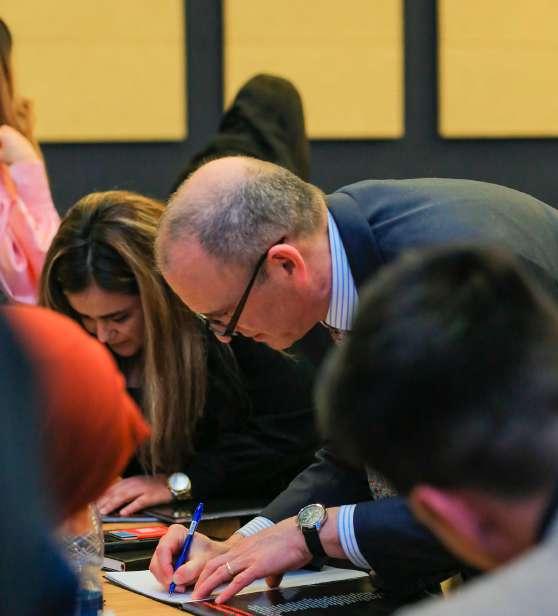
It was not easy. Many of us had little sleep for weeks on end. Some students, when faced with the difficult choice of leaving friends and family behind, because we could not secure them visas, backed out at the last minute. Some students failed covid tests and were forced into quarantine in Pakistan. On the third trip, a large group of 17 was turned back at the border and some students were beaten by the Taliban. The entire group had to return to Kabul and we debated giving up the land route, but decided to try again a few days later with a small group and succeeded.

After the land border became too difficult, we were able, through Omar again, to work out an arrangement with Pakistan International Airlines to secure visas and flights for groups of students to Islamabad But this involved getting visas from the Pakistani embassy in Kabul, which was no easy thing Perhaps the low point of the entire endeavor occurred on our first attempt to get visas at the embassy, when we thought for a few minutes that a student volunteer, who was carrying passports of around 20 students, had been confronted by a Taliban guard before going silent I feared that if those passports were confiscated, we would have lost the opportunity to leave and been responsible for their fate under the Taliban Fortunately, while the student was hit by the guard, he was not detained or injured, and, with the help of AUAF transporting students to the airport, we were able evacuate an additional 63 students on three flights
Getting students out of Afghanistan to Pakistan was the most important part of the journey But we still needed to get students to Bishkek We struggled to find flights out of Pakistan, which were almost entirely booked Yasin Yaqubie from OSF spent days negotiating a special charter to fly our students from Islamabad to Bishkek even while we were still evacuating students Then, as if the Red Sea were parting, we discovered a series of charter flights along the same route that were primarily taking Pakistani medical students to study in Kyrgyzstan, and we were able to secure seats for our students Having secured student visas, the students could finally proceed to Bishkek to re-start their education as we had hoped when we began our efforts in June
Looking back, perhaps my most vivid memory was of one night towards the end of our overland efforts, when a group of 18 students was delayed at the border for many hours. They could not get across and there were reports of shooting in the area. I was on my back porch the entire night, talking and texting with colleagues who were based in six countries, reaching out to Pakistani officials, trying to calm students, and deciding whether to abandon the mission. The relief and emotions I felt when they crossed was comparable to two other pivotal moments: when our first group of students made it into Pakistan, and when the first plane of students arrived in Kyrgyzstan. My feelings were shaped by residual wounds of the failures that in the first weeks of our efforts, the knowledge, inspired by Clarke, of how important these efforts were to students’ futures, and the transcendent feeling of grace that comes from being part of a team whose members were willing to give of themselves so absolutely and selflessly. More than once I found myself wiping away tears, overwhelmed by the magnitude of what we were doing and the gratitude I felt for my colleagues’ efforts.
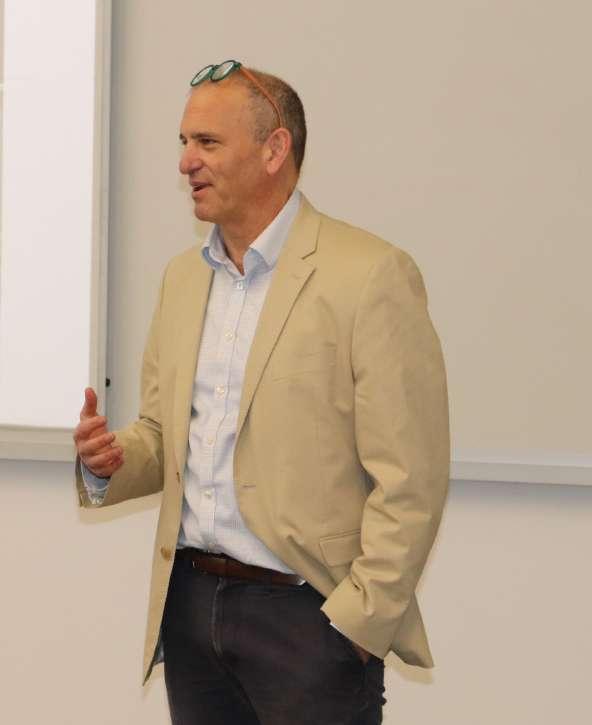
In October, I flew to Bishkek and met with many of the evacuated students in person. Some I had known from the online classes I had taught, or from civic engagement conferences and workshops I had participated in, and some I only knew from texts and lists of names. It was incredibly gratifying to see their faces and hear their stories. One student in particular was held by the Taliban for a few weeks after she had attempted to cross at Torkham with a British group. Seeing here there with her sister, with whom I had been in touch throughout her travails, was otherworldly. This joy, however, is tempered by the knowledge that while we were able to get out almost all students who joined our evacuation efforts, many of our alumni did not make it out because of family concerns, and there are many students who still have family and loved ones suffering in Afghanistan

In all, we evacuated 177 students from Afghanistan in nine overland trips and three flights. Many were AUCA students and alumni, others AUAF students who wanted to complete their education, and still others from partner institutions, like the American University in Beirut. Nearly all of them, and several additional students who found themselves in third countries, went to Bishkek to continue their studies. Their journey is not over. We are now working through the Open Society University Network and foundations and universities in the United States and Europe to secure the longerterm future for the students until a time comes when they can return home. But for now, they are safe and we can celebrate that fact that we were able to do what we set out to do.


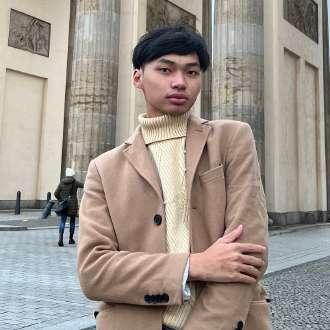
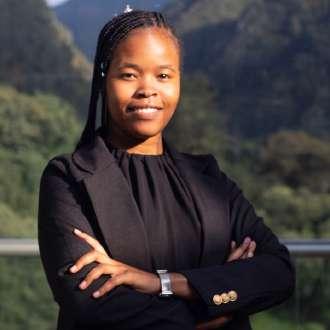
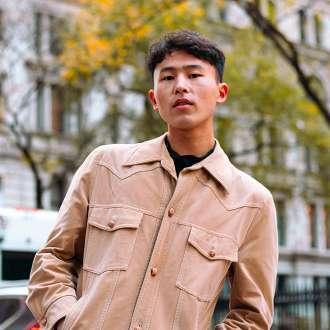
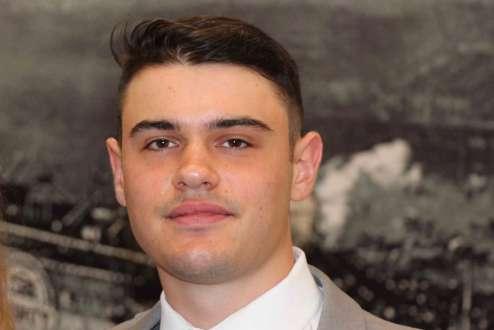
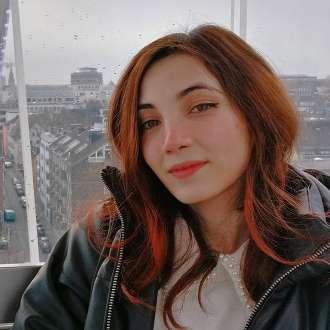
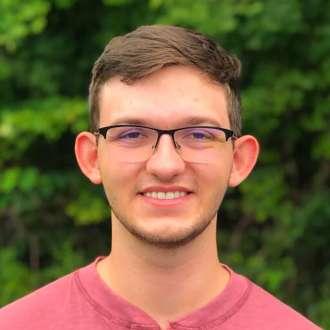

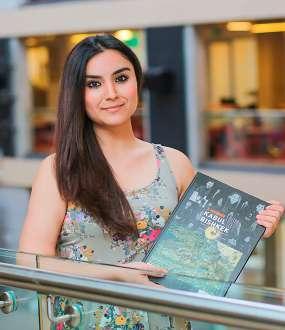 ZARLASHT SARMAST Global Engagement Fellows Program Coordinator
DUC-HUY VU Lead Global Engagement Fellow Fulbright University Vietnam
AIDIN TURGANBEKOV Global Engagement Fellow American University of Central Asia (AUCA)
HENRY MIELARCZYK Global Engagement Fellow Bard College
ALEKSANDAR VITANOV Global Engagement Fellow Bard College
LARA HABBOUB Global Engagement Fellow Bard College Berlin
ROKHILA SAIDASANOVA Global Engagement Fellow American University of Central Asia (AUCA)
SAMANTHA MAVUNGA Global Engagement Fellow Ashesi University
ZARLASHT SARMAST Global Engagement Fellows Program Coordinator
DUC-HUY VU Lead Global Engagement Fellow Fulbright University Vietnam
AIDIN TURGANBEKOV Global Engagement Fellow American University of Central Asia (AUCA)
HENRY MIELARCZYK Global Engagement Fellow Bard College
ALEKSANDAR VITANOV Global Engagement Fellow Bard College
LARA HABBOUB Global Engagement Fellow Bard College Berlin
ROKHILA SAIDASANOVA Global Engagement Fellow American University of Central Asia (AUCA)
SAMANTHA MAVUNGA Global Engagement Fellow Ashesi University
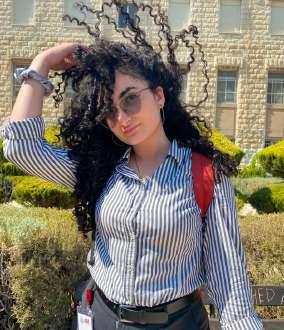
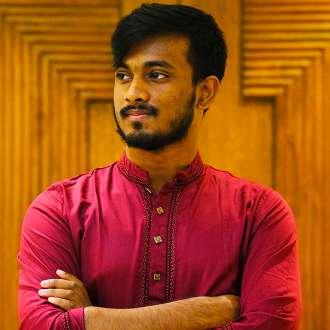
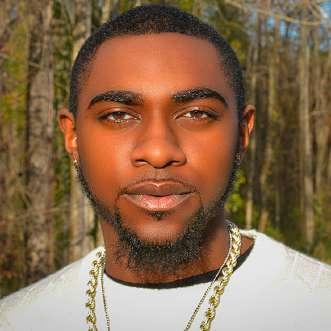
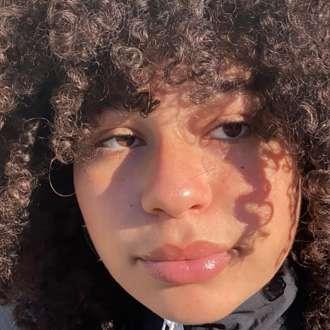

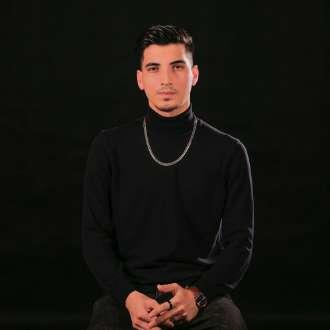
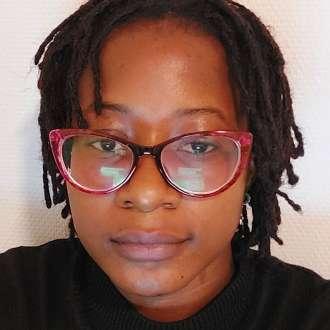
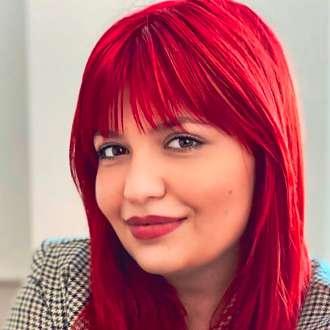

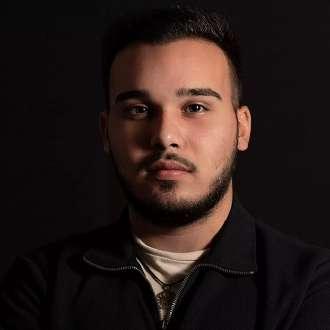 PATRICIA NAE Global Engagement Fellow Central European University
SITORA SUFIJONOVA Global Engagement Fellow American University of Central Asia (AUCA)
CHINENYE EJEREONYE Global Engagement Fellow Ashesi University
SRIJAN BANIK Global Engagement Fellow BRAC University
SAYED ANWAR IBRAHIMI Global Engagement Fellow American University of Central Asia (AUCA)
EMILIA COOPER Global Engagement Fellow Bard College
MIKELISON WOMACK Global Engagement Fellow Bard College
DAREEN ALHAJAREF Global Engagement Fellow Al-Quds Bard College for Arts and Science
MIHAIL MISHEV Global Engagement Fellow American University in Bulgaria (AUBG)
FREDA AGYEMAN Global Engagement Fellow Ashesi University
PATRICIA NAE Global Engagement Fellow Central European University
SITORA SUFIJONOVA Global Engagement Fellow American University of Central Asia (AUCA)
CHINENYE EJEREONYE Global Engagement Fellow Ashesi University
SRIJAN BANIK Global Engagement Fellow BRAC University
SAYED ANWAR IBRAHIMI Global Engagement Fellow American University of Central Asia (AUCA)
EMILIA COOPER Global Engagement Fellow Bard College
MIKELISON WOMACK Global Engagement Fellow Bard College
DAREEN ALHAJAREF Global Engagement Fellow Al-Quds Bard College for Arts and Science
MIHAIL MISHEV Global Engagement Fellow American University in Bulgaria (AUBG)
FREDA AGYEMAN Global Engagement Fellow Ashesi University
The global fellowship program empowered me to broaden my horizons and showed me the power of collaboration, as I learned from incredible mentors and connected with a diverse network of young leaders from all over the world, inspiring me to be a more effective agent of change.
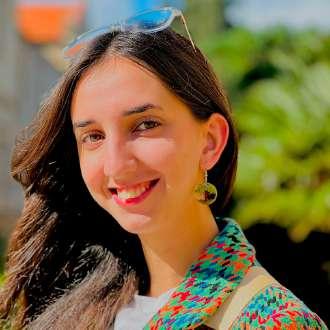
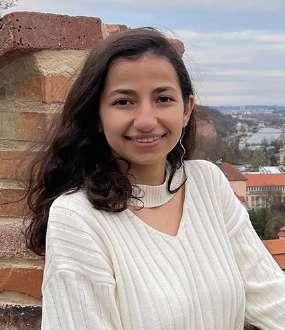
I appreciate the Global Engagement Fellowship Program as they gave me all life-changing opportunities to get out of my comfort zone and execute my initiatives for the community's wellness It is a sand-box for me to learn, work, fail and grow my profession. They gather all talents and teach us the cultural inclusitivity and accept our difference for a better collaboration across the network




Through the OSUN fellowship I had the chance to meet highly engaged and highly motivated like-minded people which helped me mature my own civically engaged project and gave me access to resources and trainings to actualize my project.
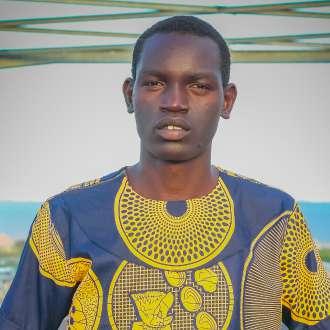

Global Engagement Fellows promote and coordinate thematic civic engagement projects across the Open Society University Network. Selected fellows have developed and sustained a civic engagement project and demonstrated leadership skills and a desire and aptitude for working with others.
Each academic year the program accepts at least 10 applications from universities within the OSUN. Global Engagement Fellows Program offers a variety of opportunities for the newly enrolled members from across the OSUN network. Once enrolled in the Global Engagement Fellows Program, fellows will receive a one-time grant of up to 1000$ to spend on developing their Civic Engagement Projects further in their institution and their community.
Throughout each academic year, fellows work together to help students at their universities. Each Global Fellow has at least 4 hours of office hours throughout the week, where they meet students and advise them on how to move forward with their projects. Moreover, the Global Engagement Fellows Program opens a supportive space for young leaders to initiate the community-minded project to serve for the common good of the OSUN students.
Additionally, fellows get to work alongside an international team made up of brilliant and passionate individuals who are committed to ensuring the world becomes better, just like you are. Being a global fellow means you want to help lead that change. OSUN is committed to ensuring fellows are provided with all the support you need – from mentorship to funding – to lead civic engagement successfully. Fellows will go through a series of workshops that are designed to provide them the necessary leadership skills that they need. These are workshops like: How to write a proposal, how to create a budget and information sessions on other opportunities they can apply for, which will help you implement your project better. Moreover, Global Engagement fellows also get the opportunity to participate in different workshops, panels and conferences to tell their stories, network with other student leaders and inspire other students to start their own civic work.
Join us to create an impact for the university student’s community across our institutional network.
"Being a global fellow gave me the opportunity to transfer my initiatives and ideas into life, creating on campus and within the network projects that are allowing me to cooperate and work with so many inspirational leaders This program enabled me to become a change maker and give me the motivation that I am taking further" – Rokhila Saidasanova
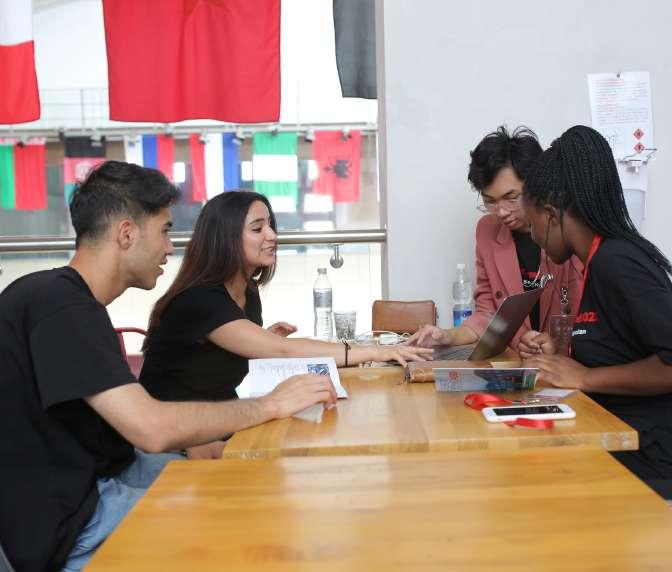
Global Engagement Fellowship Program
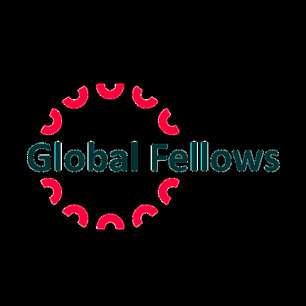
Open Society University Network

Website: Opensocietyuniversitynetwork org

Email: zarsarmast@gmail.com
Email: huyvu.yuuorg@gmail.com